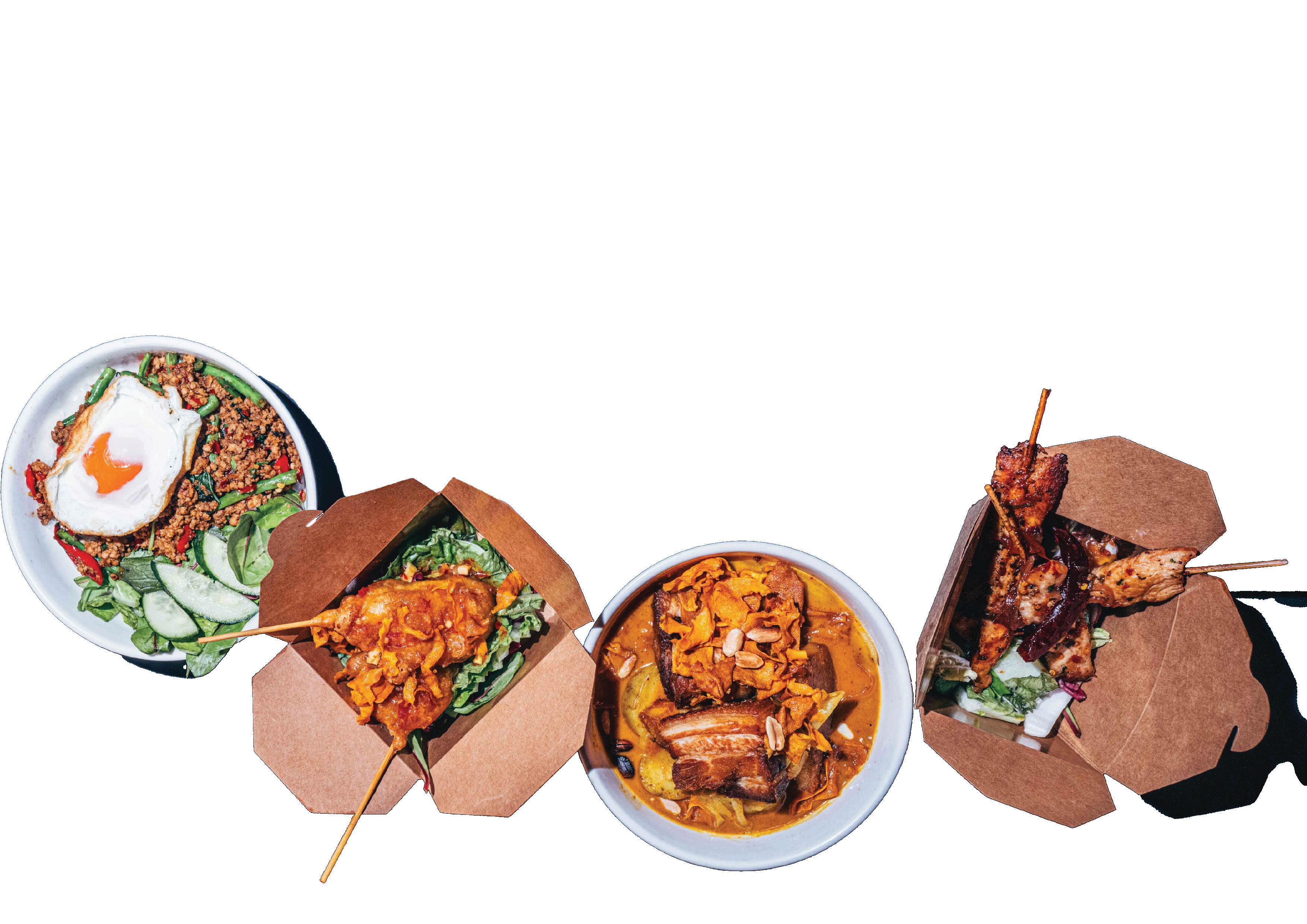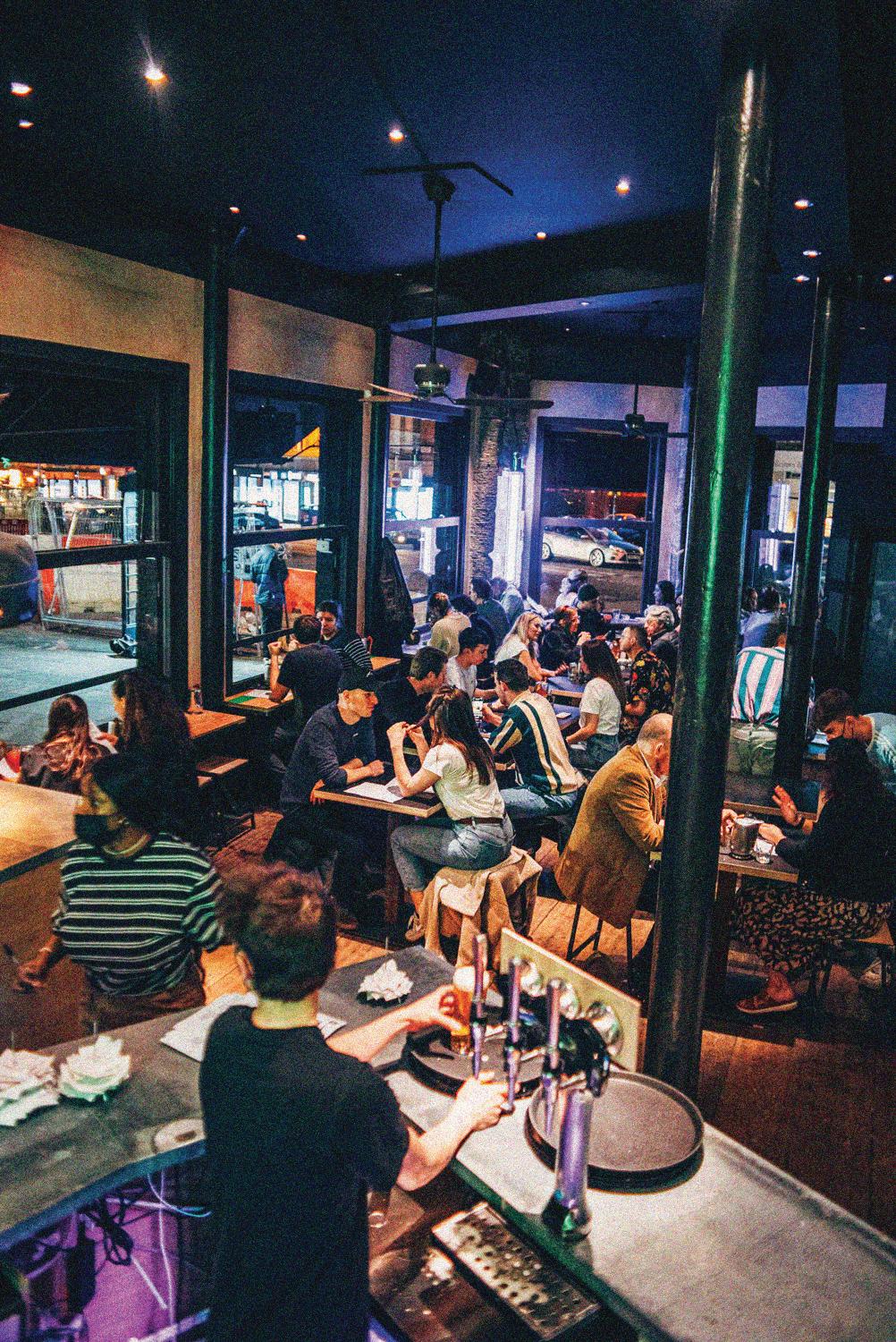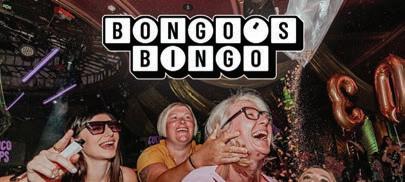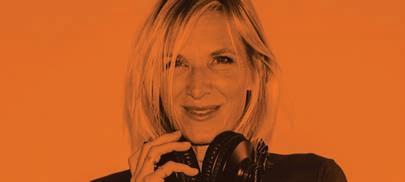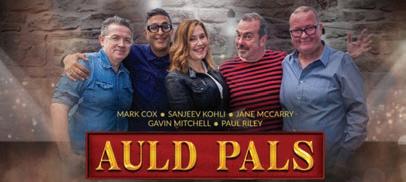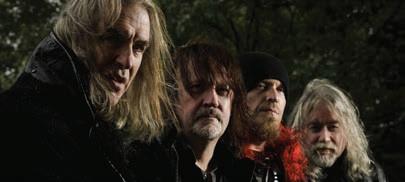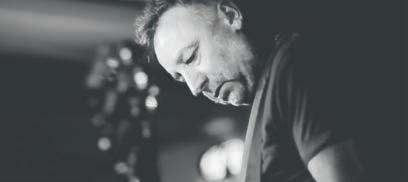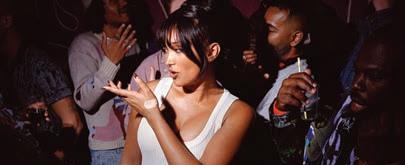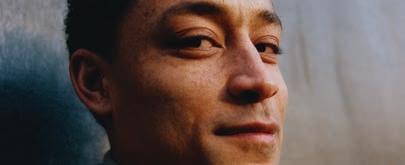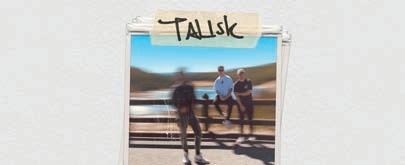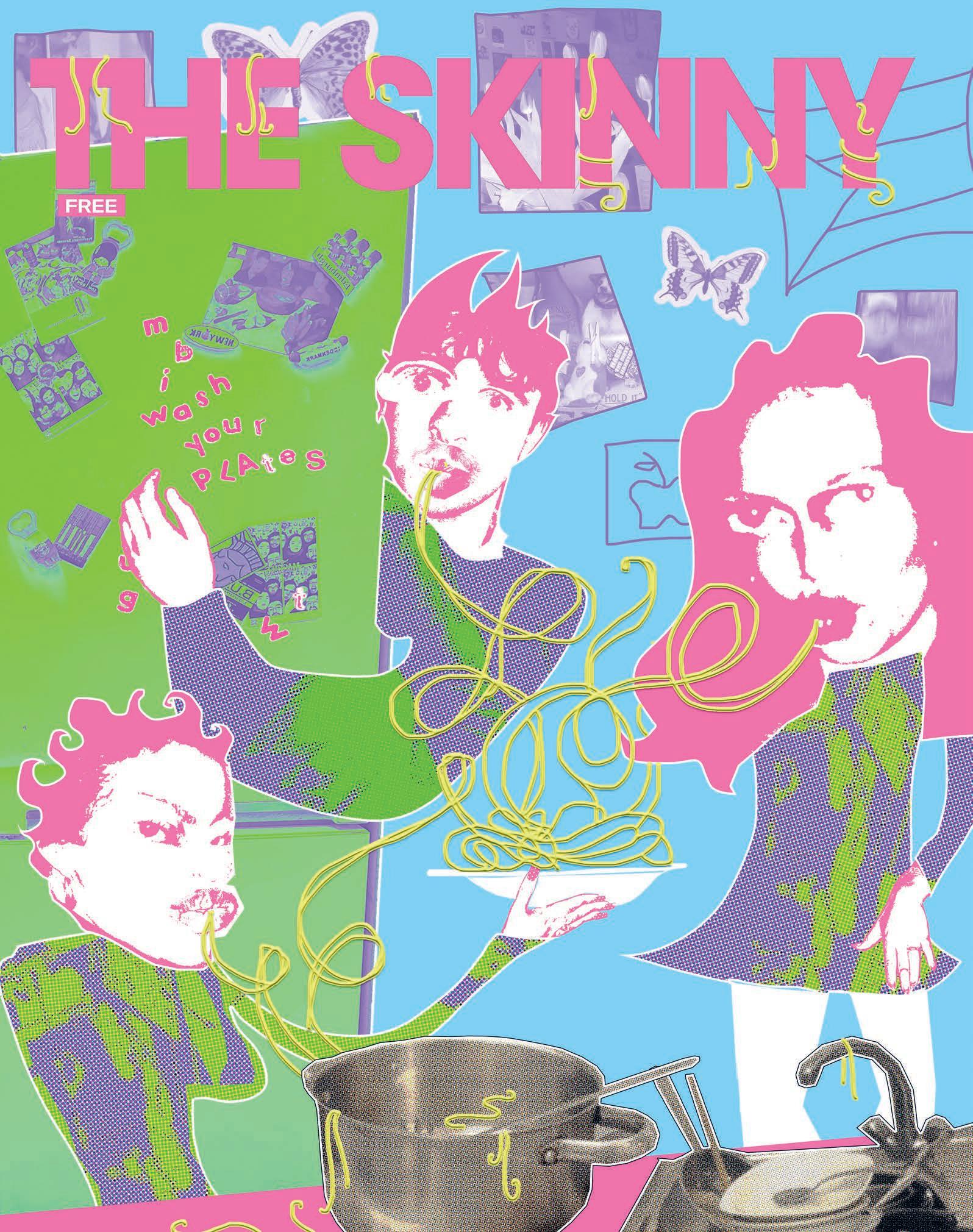

Student Guide
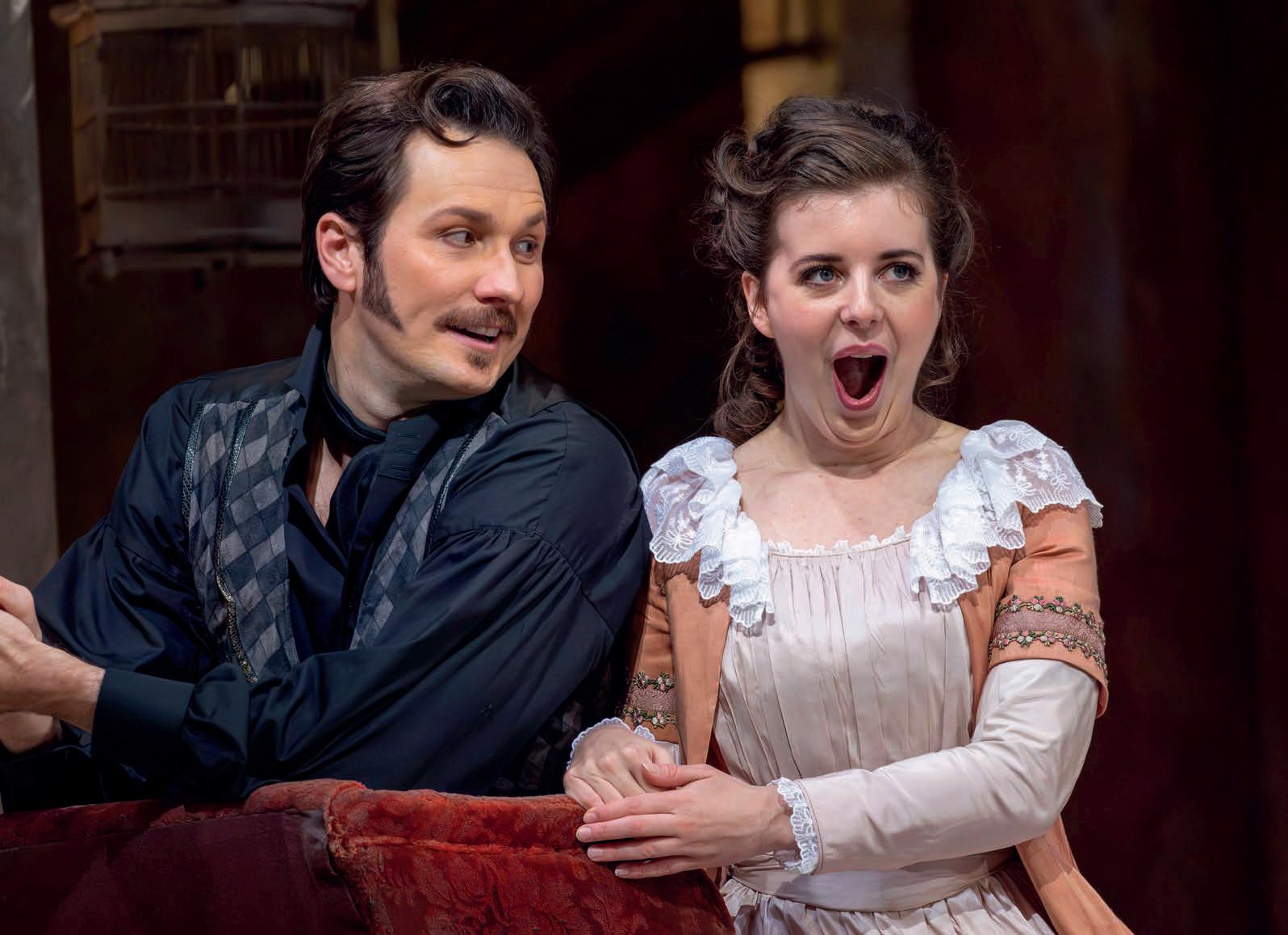


Welcome to The Skinny Student Guide 2025! It was put together by the team at The Skinny, Scotland’s largest independent culture magazine. You can pick up a free copy in venues across Edinburgh, Glasgow, Dundee, Perth and Stirling every month. We cover all things cultural – music, film, art, comedy, food and drink, clubs, theatre, books and much more besides. The magazine is completely free and comes out on the first Monday of each month. Find your nearest stockist at theskinny.co.uk/new-issue
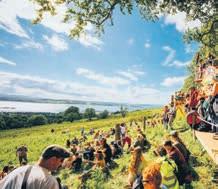
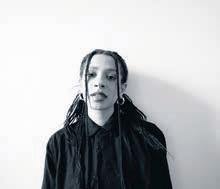
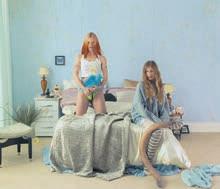

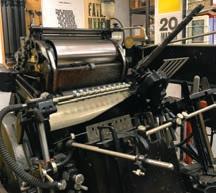
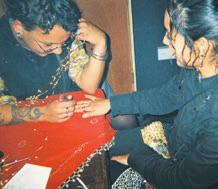
We also have a weekly newsletter which goes out every Thursday morning, The Zap. In it we share a hand-picked selection of the most interesting events across Scotland, as well as highlights from the magazine and exclusive long reads. You can sign up to receive it – again, for free! – using the QR code, where you can also get details of our website, podcasts, socials and Other Stuff We’re Up To…


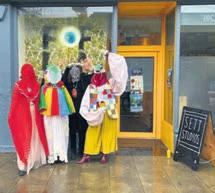
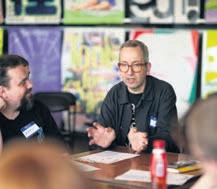
6 Heads Up - A guide to the year’s events
9 Ask Anahit - She’s here to solve all your personal issues
13 Meet the programmers and artists from AMPLIFI, the night celebrating the Scottish music scene
The power of shared meals in building community
20 How Wet Leg inspired one writer to make her social life less about sex
A guide to getting involved in student activism
How to break into the Scottish art
A day in the life of an art
We meet some DIY music programmers
Creative community in the design scene
Fresh(ers) Horror - Dark tales from The Skinny team’s pasts
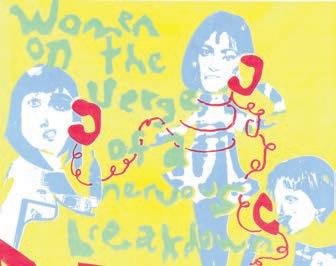
Stella Dalgleish is a Glasgow-based illustrator and filmmaker. Often playful and tactile visually, she makes use of found imagery and personal archives of video and photos to weave narratives and storylines within her work.
Image Credits: (Left to right, top to bottom) ReCompose; Rory Barnes; Stella Dalgleish; Iris Luz; Dalila D'Amico; Ot Pascoe; WSHWSH; Phoebe Willison; Stephen Hughes




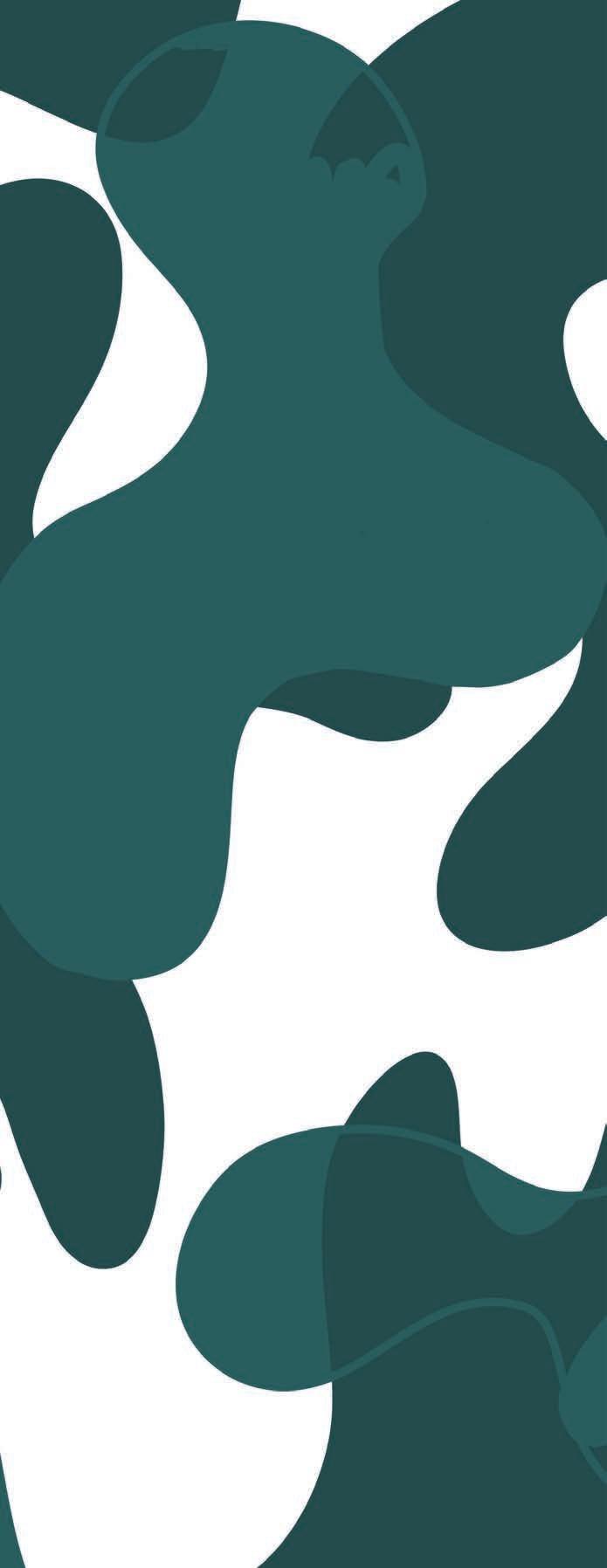
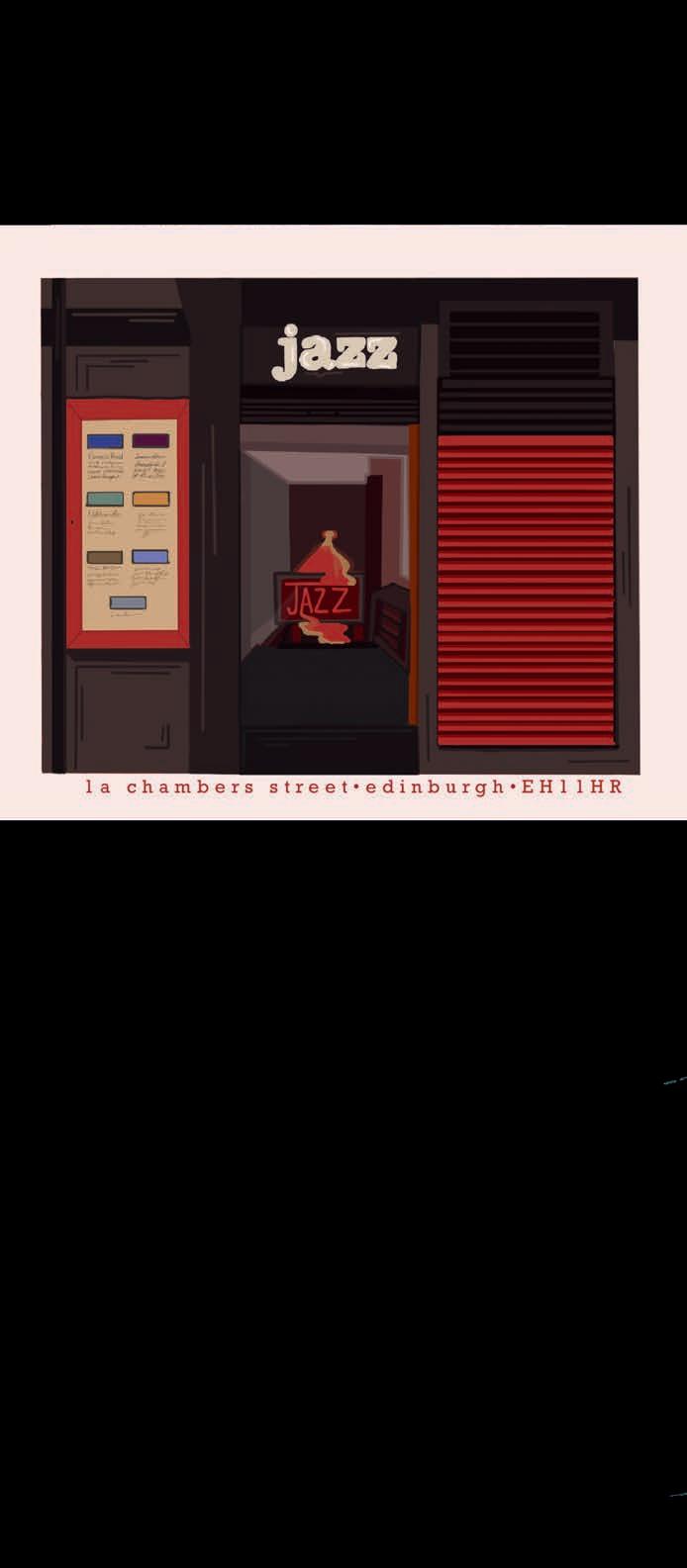

Student Heads Up
FLY Open Air Festival
Princes St Gardens, Edinburgh, 13-14 Sep
Start as you mean to go on with this big outdoor party from Scottish clubbing mainstays FLY. The lineup includes &ME, Joy Orbison, KILIMANJARO and Effy; the setting is iconic; there’s loads of afterparties if you want to keep things rolling.
Tenement Trail
Various venues, Glasgow, 11 Oct
We get it, you want to keep your calendar clear for ‘work’ and ‘studying’ and ‘the sesh’, but there is a lot going on around here. Consider these the tentpoles around which to build your year…
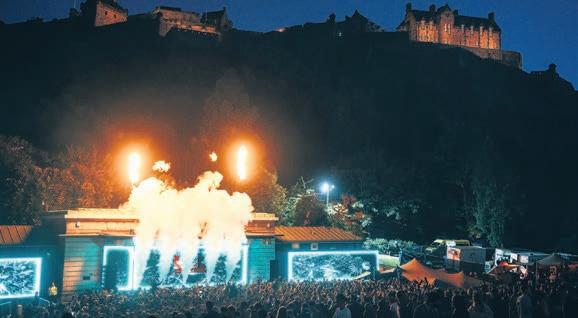
What better way to get to know the East End than swinging between its various gig venues?
The Barrowlands, Saint Luke’s and BAaD host this year’s Tenement Trail, with a lineup packed with great new Scottish bands (look out for Soapbox, Cowboy Hunters and Theo Bleak), and headlined by Pale Waves.
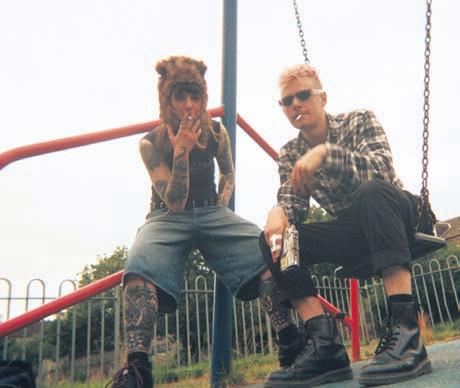
The SAY Award
Caird Hall, Dundee, 6 Nov
The annual celebration of Scotland’s best new music is in Dundee this year, with an awards ceremony at the Caird Hall on 6 Nov. Even if you don’t make it along, the SAY Award is a great excuse to listen back to some of the great albums released by Scottish artists in the past year – the 20-strong longlist is released on 25 Sep.
Scottish Queer International Film Festival
Glasgow, 27 Oct - 1 Nov
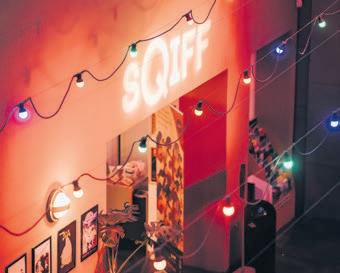
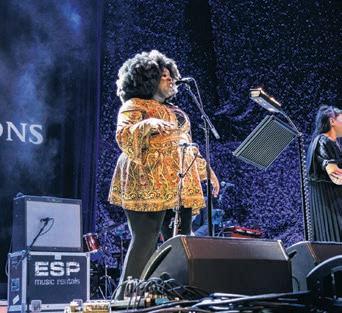
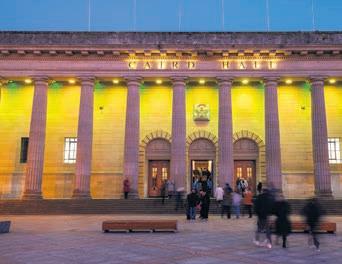
Compiled by Peter Simpson
Celtic Connections
Venues across Glasgow, 15 Jan - 1 Feb
Get back from Christmas break and right back at it with Celtic Connections, Glasgow’s annual festival of folk and roots music from around the world. Expect a mix of folk sessions, big gigs and unique collaborations – it’ll definitely help shake off the cobwebs.
Glasgow Comedy Festival
Various venues, 11-29 Mar
Glasgow Comedy Festival has a bit of everything: previews, touring shows and works-in-progress from big names, and showcases of Scottish comic talent. Early highlights include the new show from Taskmaster’s Bridget Christie, and a chance to see Christopher Macarthur-Boyd’s excellent Fringe show Howling At The Moon in the palatial surroundings of the King’s Theatre.
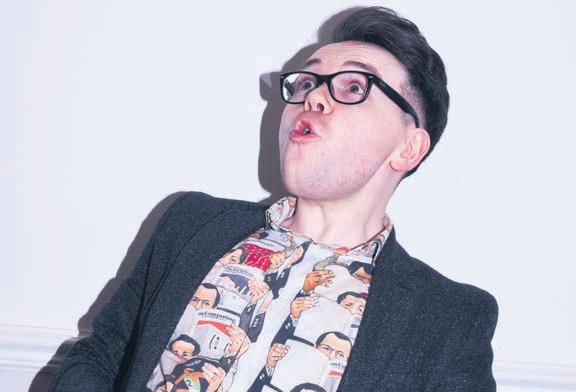
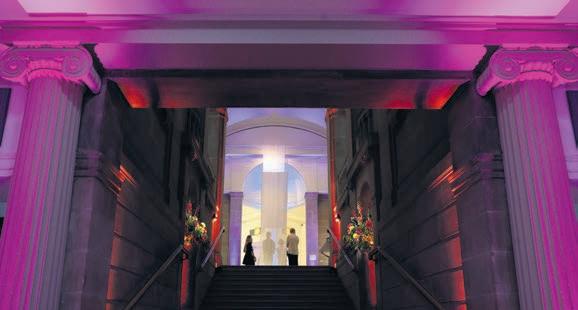
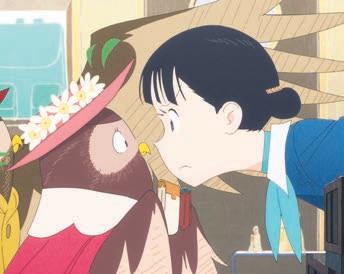
Scotland Loves Anime GFT, Glasgow, 31 Oct - 2 Nov; Cameo, Edinburgh, 10-16 Nov
Lighthouse Radical Book Fair
Assembly Roxy, Edinburgh, 6-9 Nov
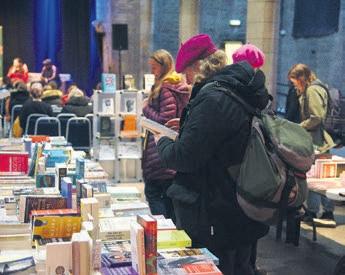
RSA New Contemporaries
Royal Scottish Academy, Edinburgh, 28 Mar - 22 Apr
The cream of the crop from 2025’s art school degree shows come together under the enormous columns of the RSA for the annual New Contemporaries exhibition. Dozens of artists from across the country in one big exhibition, with some late-night parties thrown in for good measure.
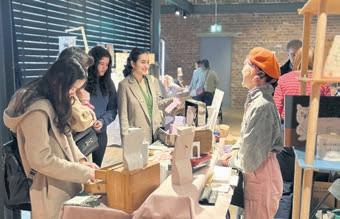
Christmas Art Markets
Out of the Blue Drill Hall and Fruitmarket, Edinburgh; Kelvingrove and Alchemy Experiment, Glasgow
Photo:
Photo:
Photo: curse these eyes
Photo: Tiu Makkonen
Photo: Julie Howden
Photo: Alan Richardson and The SAY Award
Photo: Brendan Waters
Photo: Ryan Johnston
Fruitmarket Christmas Market
Lighthouse Radical Book Fair
A still from The Concierge, 2023, Tsuchika Nishimura Shogakukan SQIFF
Christopher Macarthur-Boyd for Glasgow Comedy Festival
Cowboy Hunters for Tenement Trail
RSA New Contemporaries 2024
Caird Hall Dundee for SAY Award
Celtic Connections
Fly Open Air
Record Store Day
Various venues across Scotland, 18 Apr
Over the years, RSD has become an unofficial public holiday for music-lovers. We’re talking big queues for Record Store Day exclusives, pop-up gigs, afterparties, and a genuinely buzzy and lovely atmosphere all day long (helped by the fact that the weather is often suspiciously good for the time of year).
Alchemy Film and Moving Image Festival
Hawick, Scottish Borders, 30 Apr - 3 May
Film students – it’s time for a road trip! Alchemy is one of the UK’s very best festivals of experimental film and artists’ moving image, with a warm welcome for anyone who makes the trip south, and a huge programme of screenings and events waiting for you on your arrival.
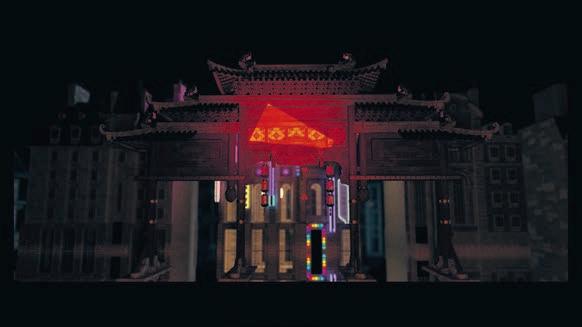
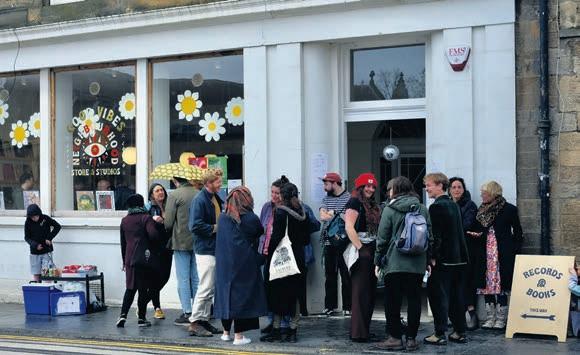
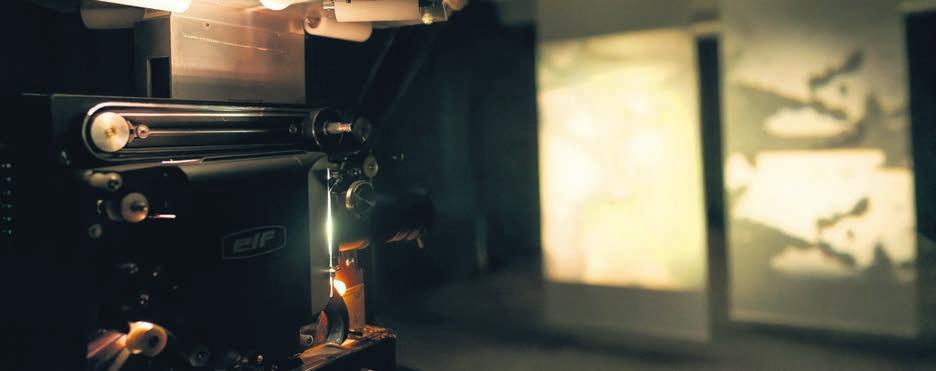
Degree Shows
Aberdeen, Glasgow, Edinburgh and Dundee, May-Jun
Graduating art students: it’s your time to shine, and share your work on an undoubtedly big platform. Studying art students: an ideal chance to be nosy and see what your peers are up to. Everyone else: here are some massive, exciting exhibitions to check out and some afters to try and blag your way into. Everyone wins.
Manipulate Arts
Venues across Edinburgh, Feb
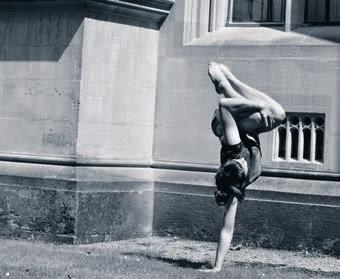
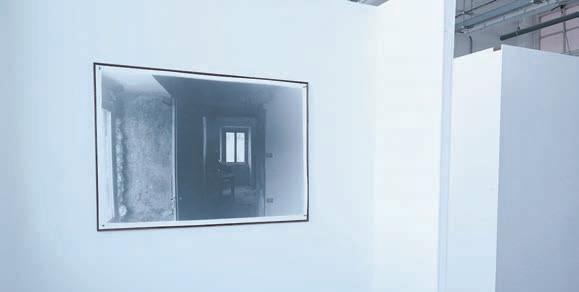
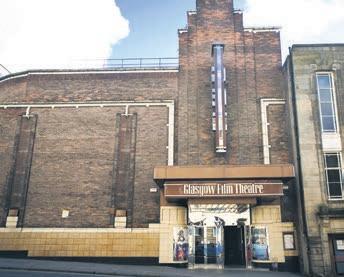
Glasgow International 2026
Venues across Glasgow, 5-21 Jun
The biennial festival of contemporary art will take over the city next June with a mix of big exhibitions, artist-led productions, unique collaborations and one-off events. Keep an eye on GI’s socials for more info.
Kelburn Garden Party
Kelburn Castle, near Largs, 2-6 Jul
Our favourite Scottish music festival, Kelburn offers a real community feel, an absolutely beautiful setting on the west coast, a huge art programme and a selection of great bands, musicians and DJs from across Scotland and beyond. Get your crew together (for your sake, grab at least one person with access to a car) and have a great weekend.
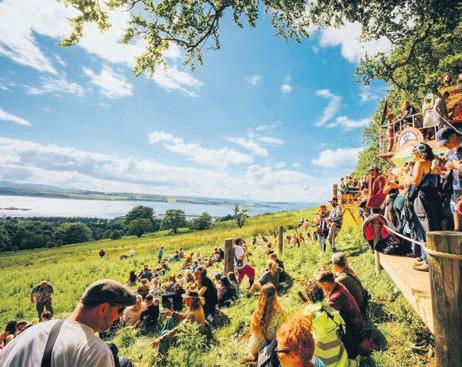
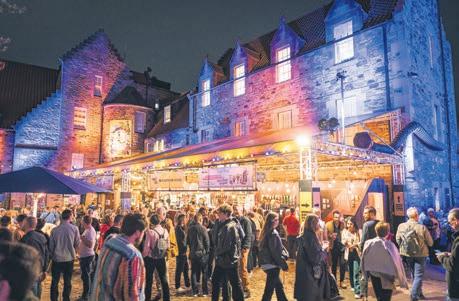
The Edinburgh Festivals August
You may have heard of them. The International, Book, Film, Art and Fringe Festivals will all be back next August, offering thousands of shows at venues across the city all month long – and countless opportunities to get a bit of bar or front-of-house work then spend all the money immediately on ‘having fun’.
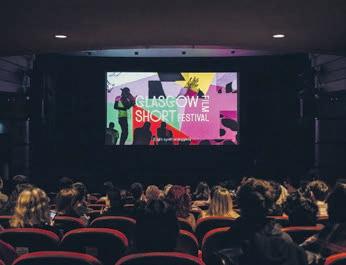

Glasgow Short Film Festival
Sonica
across Glasgow,
Photo: Ingrid
Photo:
Lachie Douglas and Sonica
Image: courtesy Glasgow International and the artist Photo: Sam Dick
Photo: Sanne Gault
Photo:
ReCompose
Image: courtesy of Edinburgh University Students Association
Image: courtesy GSA and the artist
TRIPTYCH Robin Fox
Glasgow Short Film Festival 2024
Glasgow Film Festival
Acrodance, Gabbi Cook
Glasgow International - Wah Yen 2024, Wei Zhang
GSA Degree Show - Stills from Super 8, Jules Dunn
Alchemy Film and Moving Image Festival
Pleasance Courtyard
Kelburn Garden Party
Good Vibes for Record Store Day
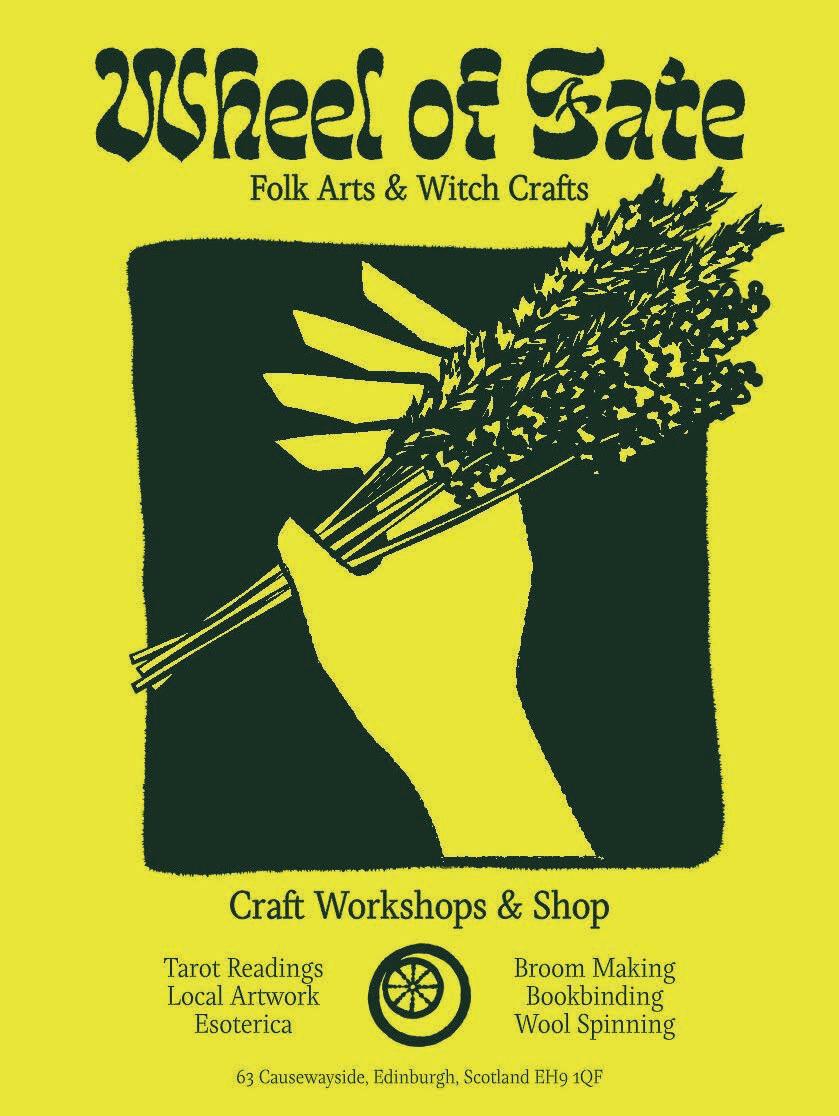
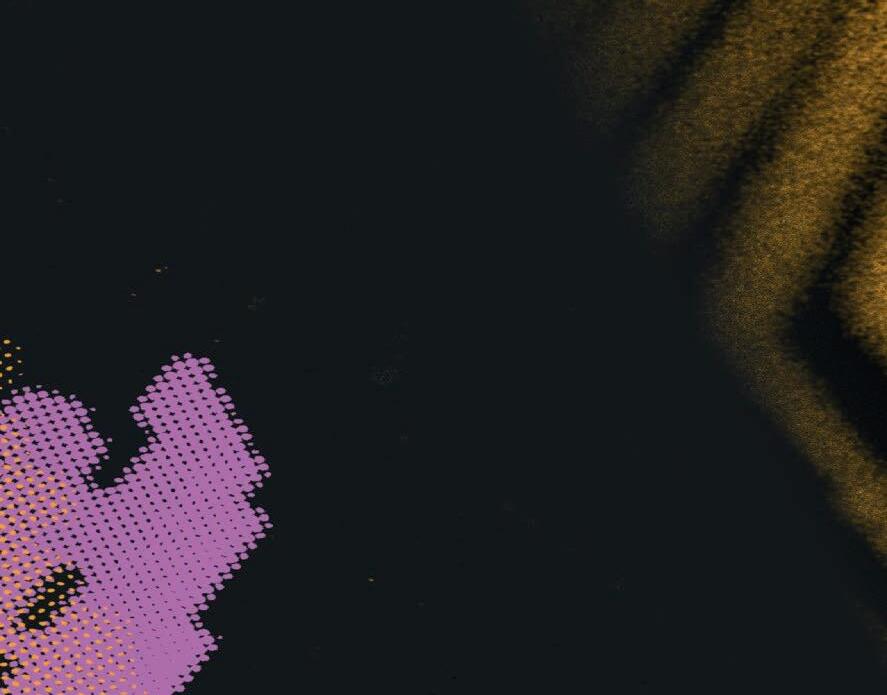

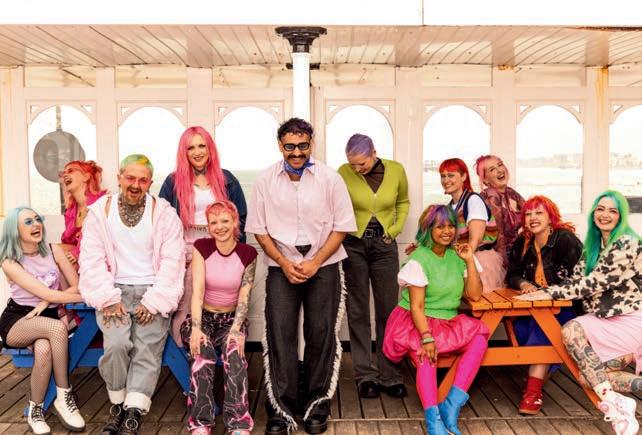











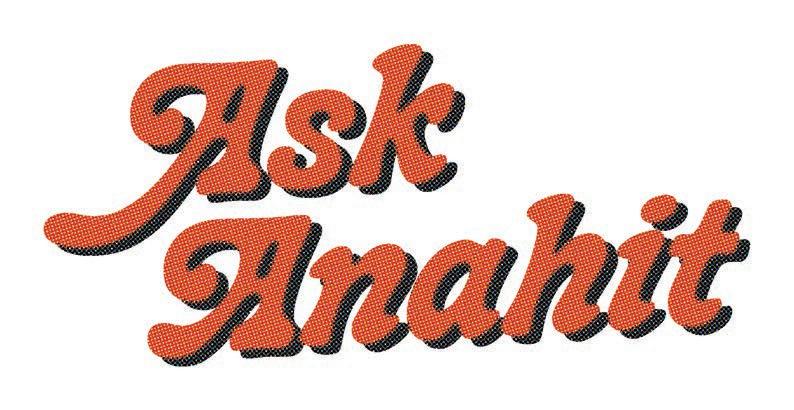



In this advice column special, our resident agony aunt answers all your burning questions about how to be a student
I feel less creative at university and I’m doing a creative degree. Is this a sign I should drop out, or should I stick with it?
I don’t think this in itself is a sign you should drop out, but I think it is a sign that you need to completely disentangle the idea of higher education in this country from creativity, praxis, or – indeed – education, and if that doesn’t feel possible then yes, maybe it isn’t for you.
You might think I sound jaded and you would possibly be right. It could be because we went on strike while I was teaching at university with a regularity that was alarming but also somewhat comforting, like the reliability of the rising sun; it could be because the vice-chancellor of the University of Edinburgh was given tens of thousands of pounds to move himself and his pets over from Hong Kong while all these strikes over working conditions were happening, and has since been given almost ONE MILLION BRITISH POUNDS STERLING of expenses to jet around the world while presumably (allegedly! allegedly!!) quashing any student dissidence he stumbles upon. Who can say. Some mysteries are destined to remain mysteries. But any institution so bound up with the capitalist machine is simply not a place where you will feel at your most creative.
I have done three degrees (this is not a brag, it is a confession), so I can tell you with certainty: fostering creativity is no longer the university-as-institution’s intended function, no matter how arty your degree or how interestingly your coursemates dress. It is, however, a space to test out being an adult for the first time, to be with your friends, and to buy yourself enough time to discover the things that really make you feel creative. Find your nearest artist co-op and get stuck in, join the community radio station with the kookiest show idea you can think of, go bother your local zine library. Creativity doesn’t happen behind closed doors, and it can’t be taught. It’s a practice that bleeds into every aspect of your life and the broader community. Go to class, get your piece of paper at the end, and find what truly makes you happy.
I really like my course, but I can’t stand some of my coursemates. We’re going to be working in groups a lot this year, how do I get through the term without shouting at them?
You know when you’re scouring through job websites in the desperate hope that maybe there will be a single job you don’t hate and you wonder why exactly you signed up for an English degree when you still can’t really define Realism even after seven separate well-meaning but boring tutorials, and shouldn’t it just be about what’s real anyway, it’s when novels show something in a real (???) way, but no apparently it’s “more complicated than that” which, if we’re being honest, is probably just something they say to maintain the ongoing Dickens Industrial Complex, and you keep scrolling and actually it seems you can do most of the jobs on here (even though you really don’t want to) because it turns out the only valuable thing yours and any other degree teaches anyone anyway is ‘transferable skills’ and not in fact how and why Ezra Pound was kind of a cunt. Anyway, one of those transferable skills is tolerating annoying people.
I have full sympathy that these people on your course are probably annoying. I also have full sympathy that most group work should be deployed only as a form of illegal torture, ideally suited to the US military when they invade the next country where they are planning to establish peace or good will or whatever. But unfortunately, adult life is full of annoying people and annoying tasks, and part of learning how not to get called up by HR for throwing a stapler at someone in your future job that you didn't want is microdosing that early on.

I’m sorry that I don’t have any better advice than to grit your teeth and get through it. It’s also very hypocritical of me because I am flagrantly rude to anyone I find irritating. I think su esting and maintaining a structure to these meetings to make them as efficient and short-lived as possible is a good idea; so is giving yourself a treat when you’re done. Maybe collect all your coursemates’ worst habits and turn them into an eviscerating short story. But really, and I’m so sorry to say, this is probably a valuable learning experience for you.

I’m going back to uni this September and also staying on at my current job. I’m a bit worried about maintaining a healthy work / study / life balance, especially after dropping out of my last attempt at a full time Masters. Do you have any advice on how to approach this stage of my life without losing my mind or burning out?
Firstly, and I don’t know if this is helpful, my Masters was the easiest out of all three of my degrees (I said this sentence out loud in the office and everyone booed which – reading it back – was the least I deserved), so I think it might be less full on than you think! The one good thing about university, and especially graduate courses, is that they are so flexible and (forgive me) so easy, because they are largely used as a way to extort money from international students to, oh I don’t know, pay the vice-chancellor to go on holiday, that that balance is definitely possible to strike.
What it requires is a baseline level of organisation, and for you to be realistic about what you can achieve. How does your course manage assessments, and how sta ered are they throughout the term? Go through the plan and put those deadlines in your calendar now, and then work backwards and block out the week or two you’ll need to read for and write them. Figure out with your work what your easy weeks and what your hard weeks will be, and try and adjust your work schedule accordingly. Be OK with saying no to your friends if you don’t feel like doing something! There will always be other times to hang out and the pressure you feel is only coming from yourself. And finally, be prepared for all of this to go out of the window. It is part of the charm of higher education, that so much is done by the seat of your pants, that you ignore that assignment that is due tomorrow, no like really tomorrow, like you have to write it tonight, to hang out with your friends. It’s one of the last times in your life that you can make and are actively encouraged to make bad choices, and I really do think the entire purpose of postgraduate courses are to give yourself one to four more years of this, as a treat. The easiest way to avoid burnout, in my opinion, is to not take any of it seriously. Try and get back into that 18-year-old mindset, where nothing matters at all.
I’ve just finished my bachelors degree and cannot image not being flatmates and living in the same city as my pals from uni. How do I stay in touch with people across a ten hour time difference? Is there any other way you can think to stay in touch with my pals back home in New York than a lovely phone call to chat and catch-up?
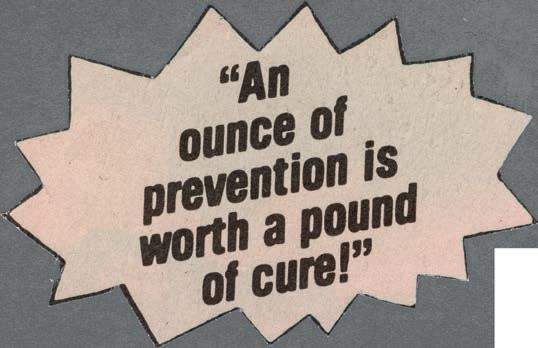
This is really sweet! How nice for you! I’m so sorry to say that this is probably not feasible, but what a lovely impulse! That period of your life, where you all lived together and shared the intimacy you can only share by going through the same thing and living in the same place, is unfortunately over, and it will never come back in this exact form. I don’t mean this in a defeatist, nihilistic way: more that you need to be able to recognise that change in order to keep the friendships, and to let them change shape and occupy a new space in your life. Maybe you will become even closer, maybe you will drift apart, maybe you will not speak for a while and suddenly end up living together again and it’ll be magical like it was before. You simply don’t know, and while the thought of not knowing and instead trusting that relationships will change and that loss and growth are part of life makes me want to throw up, it’s only by letting go that we, incongruently, get to keep hold of things at all.
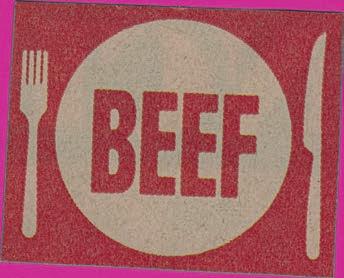
I cannot stress enough that while I know this, I simply cannot enact it in my own life, and react to all change with a particularly volatile mix of panic and hysteria that makes everything implode anyway. And that is one solution! But if you can be more normal, and I truly do believe in you, you’ll find that life can be surprising and beautiful, instead of surprising and devastating. Send each other voicenotes, send each other packages, watch all their Instagram stories so you feel tapped into their life. But also try and accept that it will be different, but that doesn’t mean it’s necessarily worse, or over. I think. Maybe. Who fucking knows to be honest. I’m not sure I really believe any of this anyway.


Do you have a problem Anahit could help with? Get in touch by email on pettyshit@theskinny.co.uk, send us your quandaries with an almost-unhelpful level of anonymity via NGL, or look out for Ask Anahit callouts on our Instagram stories
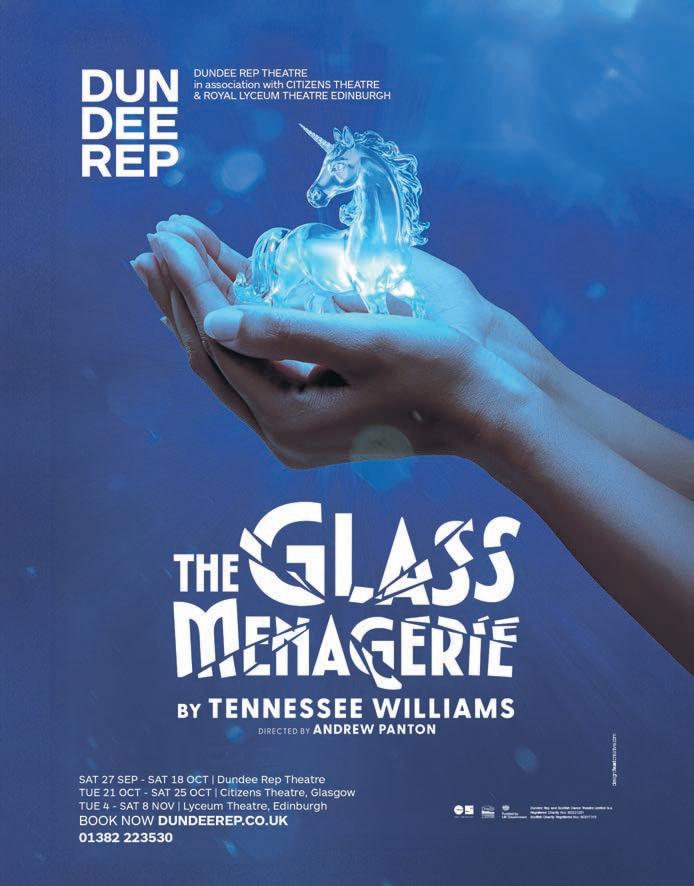
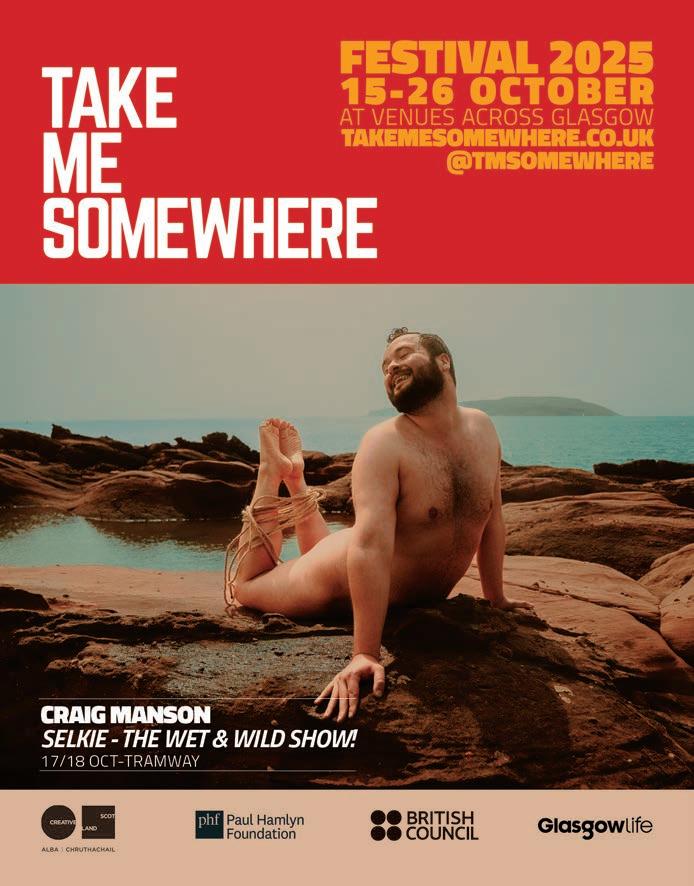

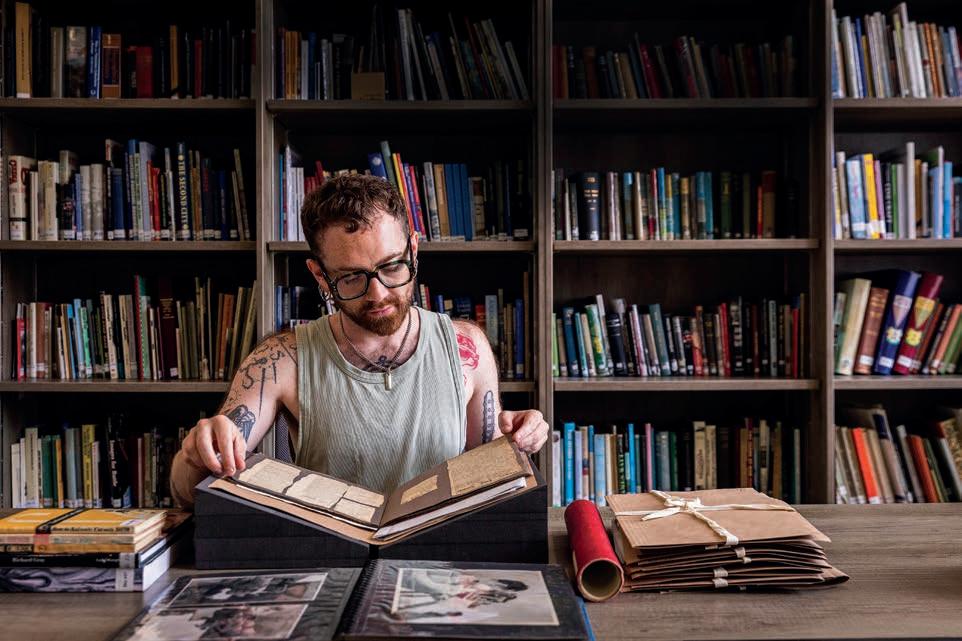





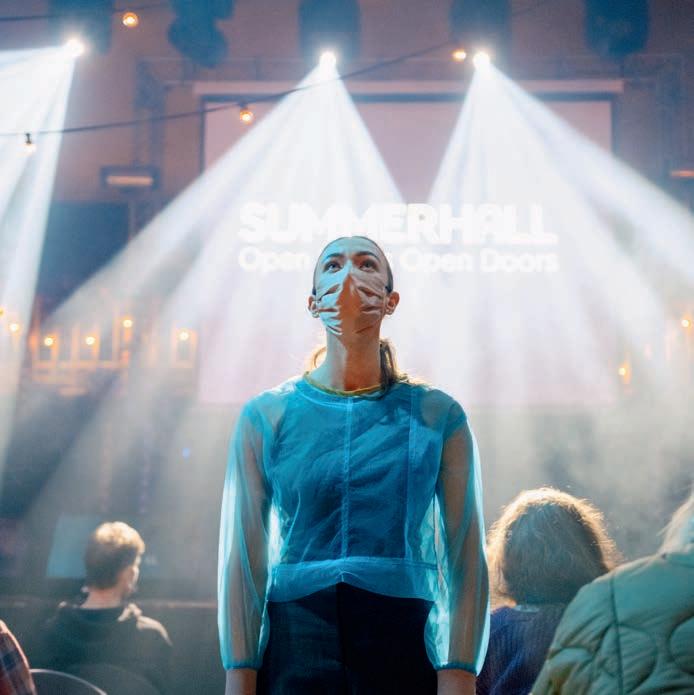



Amped Up
We hear from the creators and stars of the fourth season of AMPLIFI about the breadth of the Scottish music scene, taking over The Queen’s Hall main stage and the night’s importance
Back in early 2022 word reached Skinny HQ that friend of the mag Arusa Qureshi was working on something new, a series of three gigs at The Queen’s Hall. We knew nothing about it other than that it would be exciting – after all, Qureshi was (and still is) an esteemed music journalist whose taste we all trusted. These three gigs, going by the name AMPLIFI, were a partnership between her and Halina Rifai, a prolific Glasgow-based podcast producer and music writer, and all-round good e . The aim was to showcase the depth and breadth of music by Scottish musicians of colour, with no restrictions placed on genre and experimentation encouraged.
The result was something quite special – both intimate and casual, a gathering of interested and supportive music heads in the long, narrow bar down the side of The Queen’s Hall main room. Those three gigs have grown to three years’ worth of semi-regular programming, and the acts themselves have grown in stature too: since their initial performances in that intimate Queen’s Hall space Bemz has gone on to sell out rooms at SWG3 and Brownbear has led a hugely successful and mostly sold-out tour, while Miwa Nagato-Apthorp recently appeared on a lineup with Vi o Mortensen at the Edinburgh International Book Festival.
Now, following a show back in The Queen’s Hall’s bar this month, a bi er series of AMPLIFI, running across four nights from October to March, will take over the venue’s main auditorium, featuring for the first time headline acts from outside of Scotland, each supported by one AMPLIFI veteran who has previously performed with them in the bar space.
Qureshi tells me this has been an ambition of theirs all along, “partly to be able to give up-andcoming artists the opportunity to play on the immense Queen’s Hall stage, but also to emphasise that they very much belong there. In addition to this, we want to be able to promote these artists beyond Scotland and a great way to do that is by inviting artists on tour to play AMPLIFI, so that we can offer previous AMPLIFI artists the chance to play some really exciting support slots.”
For this reason, the nights have been arranged thematically by genre – the first in the series, for example, is a jazz special, with Tuba extraordinaire Theon Cross (formerly of Sons of Kemet) headlining, supported by two exciting acts from the Glasgow nu-jazz scene, Azamiah and GAÏA.
Rifai points to the symbolic nature of these lineups: “We’re showing Scotland that we are united globally, demonstrating what people can learn from each other – the talent, the influences, the possibilities. We’ve matched these touring artists with local artists based on sonic synergies and shared values around pushing boundaries. It’s about cultural exchange – showing that Scotland’s
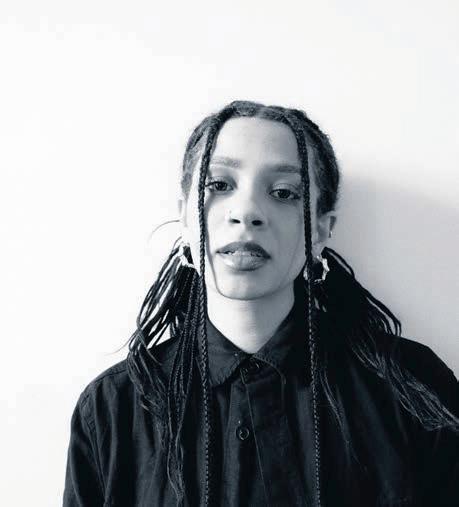
“For Black artists in particular we often face barriers, we often don’t see ourselves in major venues like The Queens Hall or on festival lineups”
Brownbear
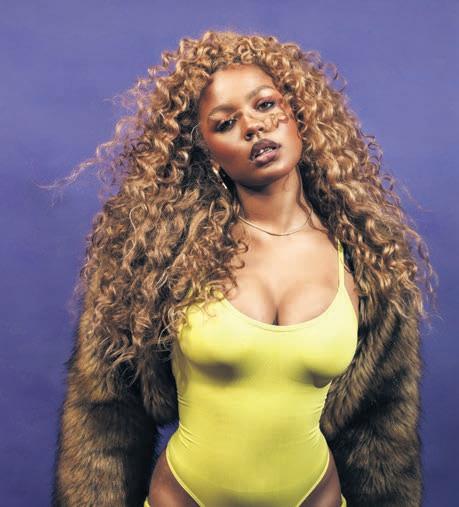
Words: Laurie Presswood
music scene exists in conversation with the world, not in isolation.”
GAÏA first graced the AMPLIFI stage in March of this year – she speaks to the excitement of getting to play in spaces specifically reserved for lifting up the voices of artists of colour. “It gave me a very similar feeling to what it was like when I played M4 Festival last year, of how important it is and how refreshing it is to be on an all Black lineup and to be around people that are there to hear your music and that want to encourage growth in that space.”
But of course she also points out how much variety can exist within those lineups: “I think the most exciting thing about music and music culture in general, is cross-pollination, and the fact that it isn’t static, and it isn’t just this one thing, and Scotland has the opportunity to nurture all of these different genres and all of this talent.”
This idea of rich musical diversity is key to AMPLIFI’s vision and success, so it’s no surprise that each of the acts playing in the upcoming series taps into this theme when asked about the night’s importance, and the nature of modern Scottish music. Brownbear, who headlined that very first AMPLIFI, points to it as a showcase for excellence: “For Black artists in particular we often face barriers, we often don’t see ourselves in major venues like The Queens Hall or on festival lineups, we have an expectation around sound, genre and look. AMPLIFI is a blank page for us to perform at the highest standard and be who we are as individuals, whether we are rock artists, indie artists, soul artists, hip-hop, it doesn’t matter. It is very much a case of get up there and show them why they have been wrong in overlooking us.”
LAMAYA, who came to the AMPLIFI stage at just 19 years old, already equipped with megawatt star power (and who will be bringing that star power back to the main stage later this year), sums up perfectly what it is that AMPLIFI captures: “The sound of modern Scotland is… diversity. Sounds from all over the globe. Squeezed into one city. Basslines that feel otherworldly but are born here in places like East Kilbride. It’s accents clashing and cultures blending. It’s a country remixing itself in real time.”
The next installment of AMPLIFI runs in the bar at The Queen’s Hall on 15 Sep featuring Bell Lungs, Lucian Fletcher and Kevin Leomo on the lineup
The main venue series kicks off with Theon Cross, Azamiah and GAÏA on 15 Oct with future dates on 3 Dec, 4 Feb and 27 Mar
Keep up-to-date at thequeenshall.net and weareherescotland.com/amplifi-newstage
Photo: Rory Barnes
Photo: Kim Simpson
GAÏA
LAMAYA
Home Cooking
Between lectures, parties, coursework and work-work, you’ve got a lot going on. We look at how cooking together with your flatmates can help build community and fuel your fun
It took me a while to get into communal cooking with my flatmates. While attending the City College of New York, a public university in Harlem, I lived in the campus dorms for two years. I roomed with some insane folks and needless to say we did not cook together. When I moved into a Brooklyn flat with a bunch of pals for my last two years of uni, it somehow took us a full year to christen ‘Taco Thursday’ as a weekly family dinner. It was inspired by a friend re-enrolling in my flatmate’s art institute; we all wanted to establish a routine of getting together in the flat and intentionally spend time together as a friend group.
Cooking with flatmates is a sweet routine to create. Whether you start out as uni friends, know each other from school, or are complete strangers, it can establish a moment of connection that lasts longer than a chat in the living room. Sure, if you
In order to establish some proof behind this promise, I had a chat with Ema Smekalová: graduate of The University of Edinburgh, former resident of the Edinburgh Student Housing Co-op, and (as you may have already noticed) fellow member of Team Skinny. Ema’s connections to the ESHC and our shared history of communal flatmate cooking made this chat too good to pass up. Upon moving into the Co-op, it was decided that everyone in Ema’s flat would cook each other a meal one night a week, as we did in Brooklyn, but it didn’t end there. “The nicest part of it was that we shared all the food as well,” they say. “People would do a shop and then there’d be stuff in the fridge and cupboards. It was free to use and there was this policy of trust that we had all spent similar amounts.”
Back in Brooklyn, we had a similar food
Words: Billie Estrine Illustration: Stella Dalgleish
owed each other from buying groceries and paying bills. Here in Edinburgh, it seems like Ema and co were definitely on the right track.
Along with communal meals in the flat, someone at the Edinburgh Student Housing Co-op would organise weekend breakfasts for the whole building. “There’s a basement, which is the communal space,” Ema says, “and people would just cook loads. Someone would organise it and do a huge batch and then everyone else would bring little bits, go downstairs and we’d all eat together in the basement.” The Co-op does a great job of creating a sense of community for university students who are so overwhelmed by their course (and broke) that they aren’t known for cooking lavishly, if at all. “ Beyond the breakfasts, there was Hearty Squirrel, who ESHC would collab with on a community meal.”
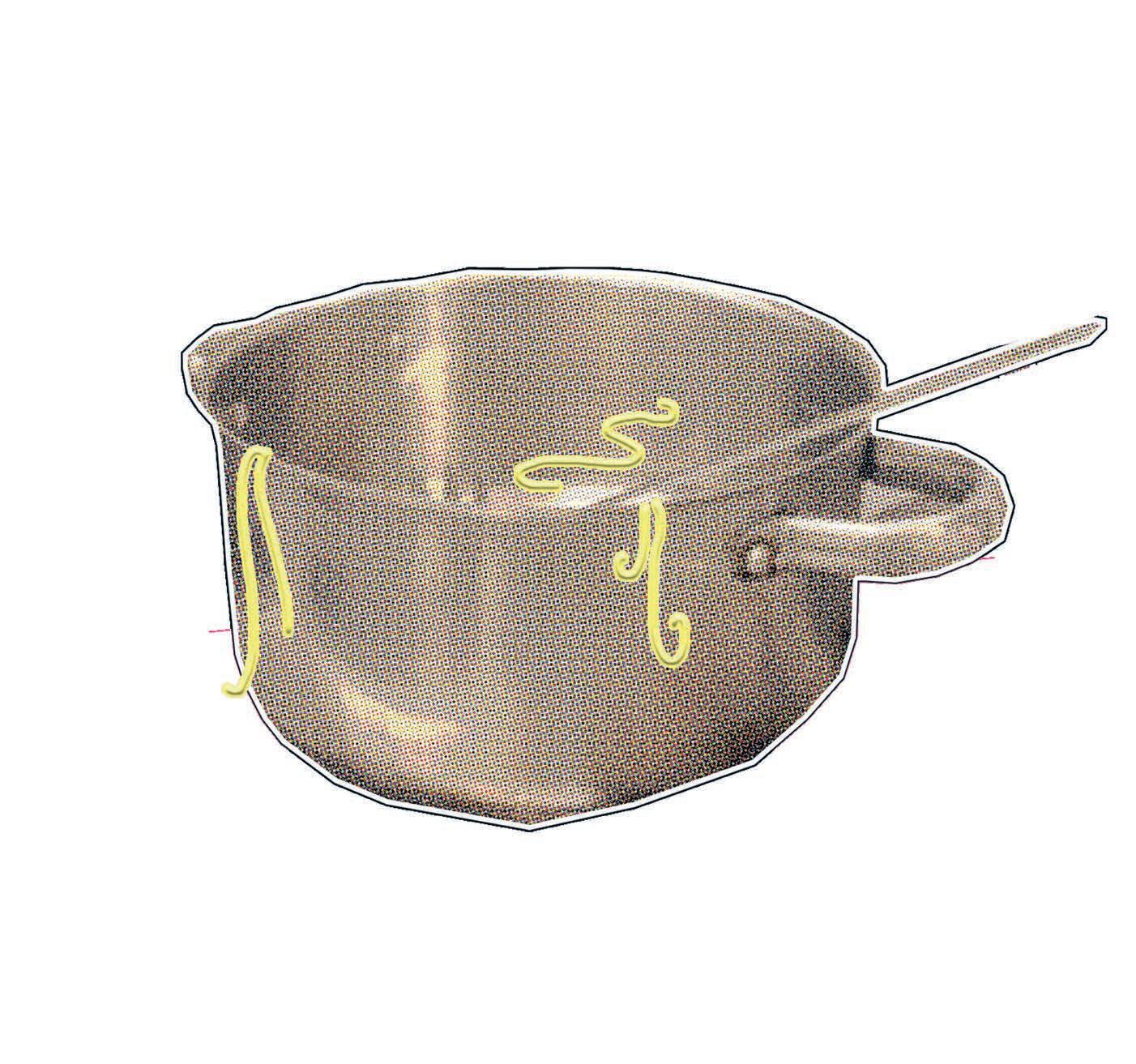
Hearty Squirrel Food Cooperative and ESHC still run this collaboration each month uni is in session. Juliet is a member of Hearty Squirrel and tells me more about the collab. Even before the community meals began, the organisations’ relationship goes back around seven years, with monthly community meals beginning in 2023. Juliet says the group make a meal “for around 70 people, destined for anyone and everyone on a pay-as-you-can basis. We try to highlight the importance of food seasonality, sustainability and sovereignty and talk about different perspectives and actions to take part in.” The meals serve as a way to fundraise for different causes. “Charities we’ve raised money for include Mothers of Sumud in the South Hebron Hills of Palestine, Grassmarket Community Project and Calais Food Collective,” Juliet tells me. It’s a wonderful example of how communal cooking can leave uni accommodation and enter the wider community. Shared time around food is so important and an opportunity to interact with new people – and who wouldn’t want to go to a pay-what-you-can meal as a broke uni student?
Taco Thursdays are among my fondest memories of that Brooklyn flat. It was a tried and true way for five friends to get together for a hang and it even promised all us very busy people a hearty meal once a week. Communal cooking with your flatmates can be a once a week routine, or in Ema’s case, a nightly occurrence. Communal cooking can be organised, or fall apart as people get busy with the semester. But you live together – it’s a habit that can be picked right back up when the (dinner)time is right.
Hearty Squirrel Food Cooperative’s first monthly meal is at Edinburgh Student Housing Co-op Basement, 25 Sep, 8.30pm, pay-what-you-can
@heartysquirreledinburgh on Instagram
heartysquirreledinburgh.weebly.com
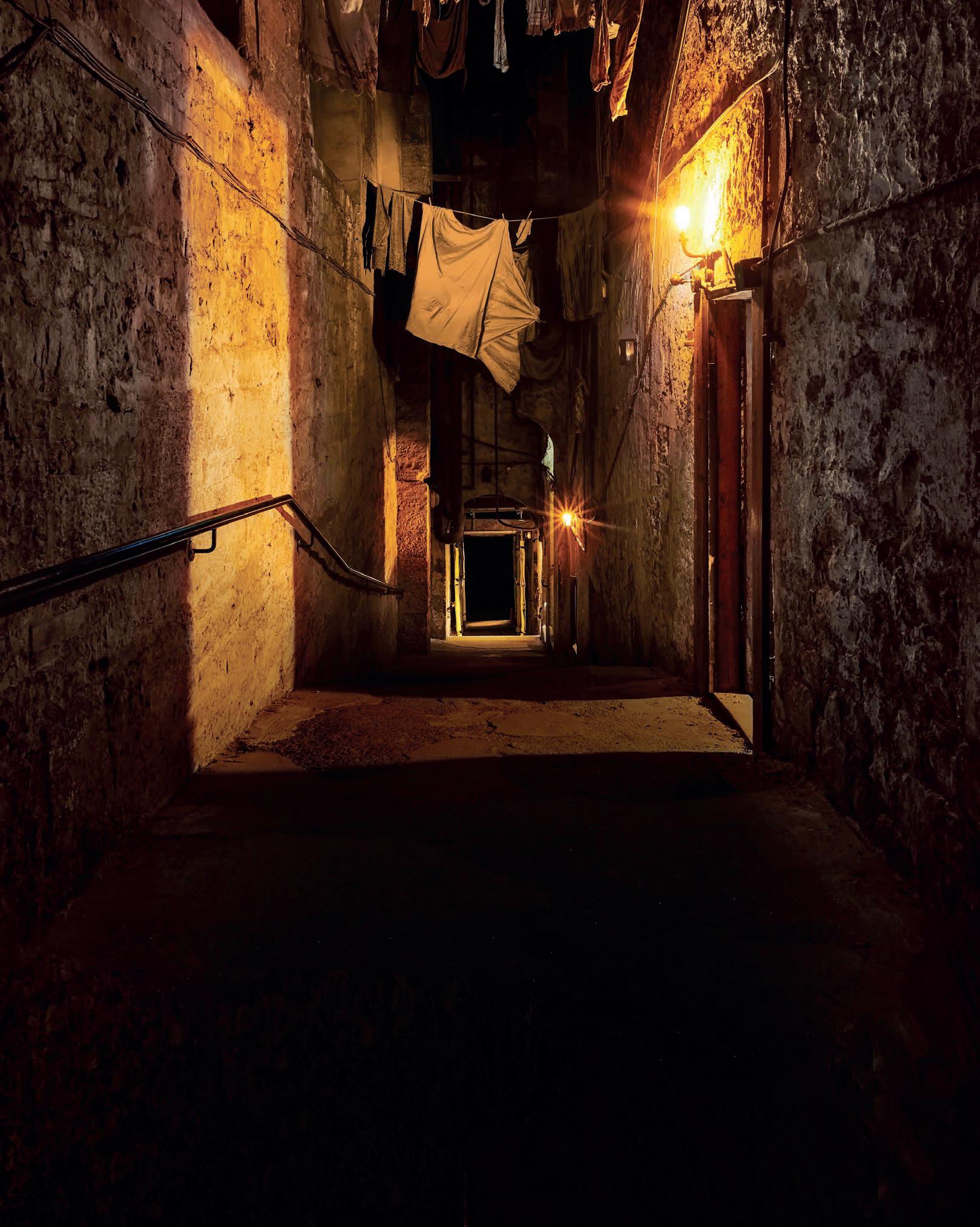

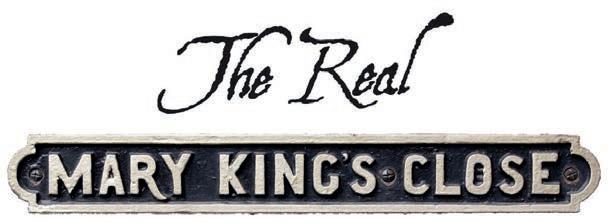
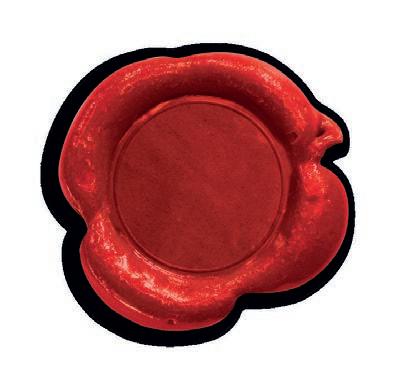


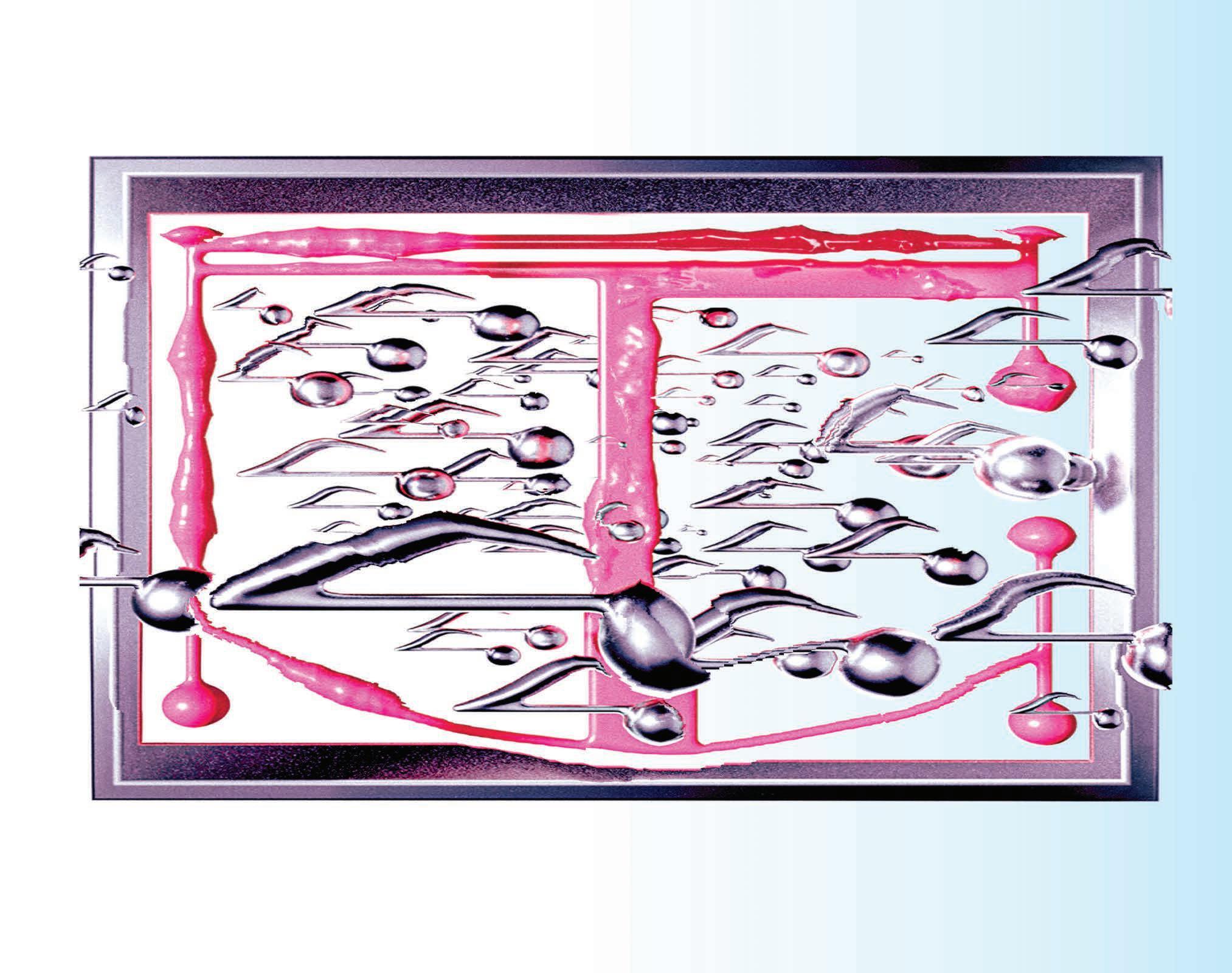
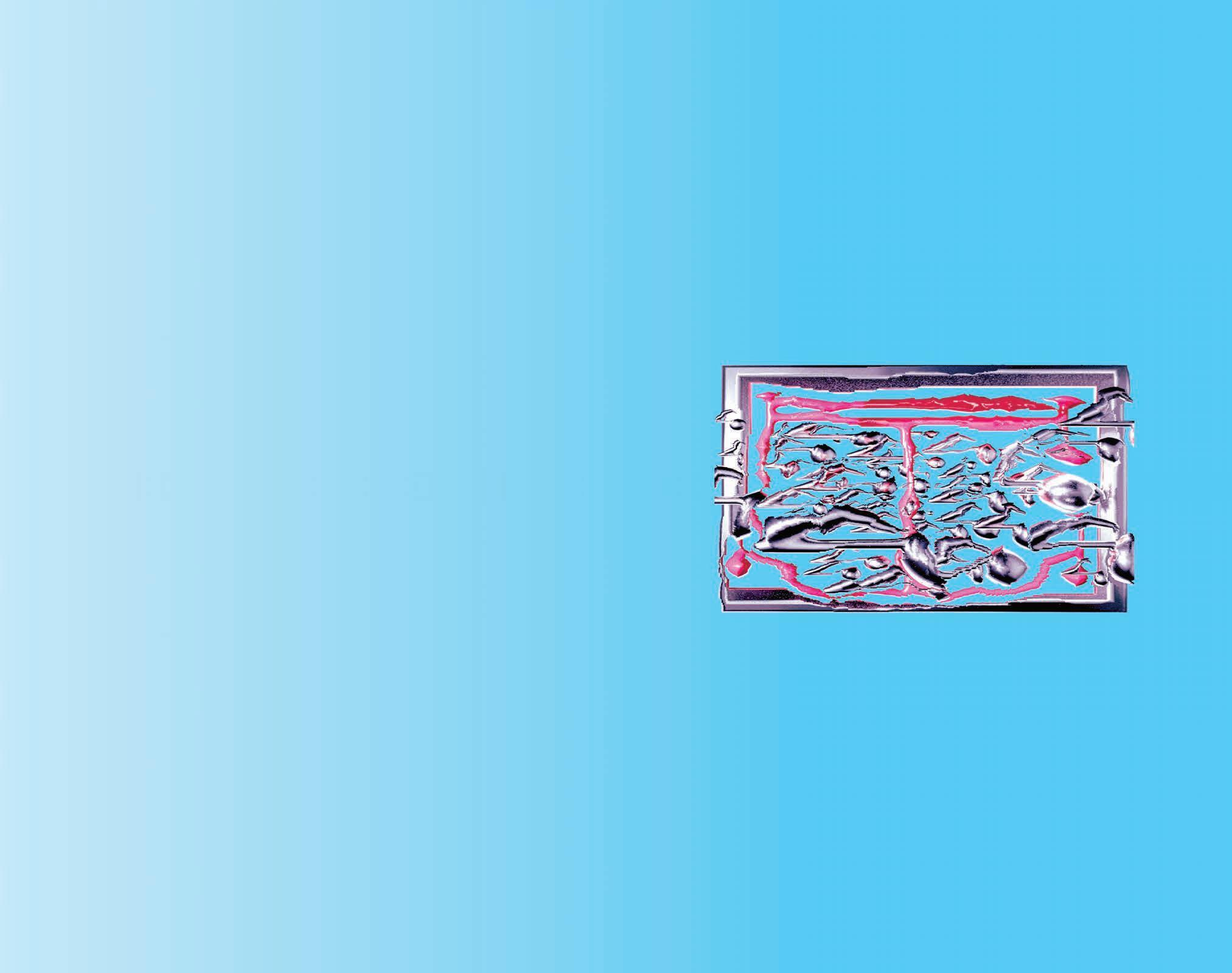
29 DEC 2025 I JAN 2026

Sign up to our newsle er today to be the first to hear about all the celebrations in store for Edinburgh’s Hogmanay 2025–26!
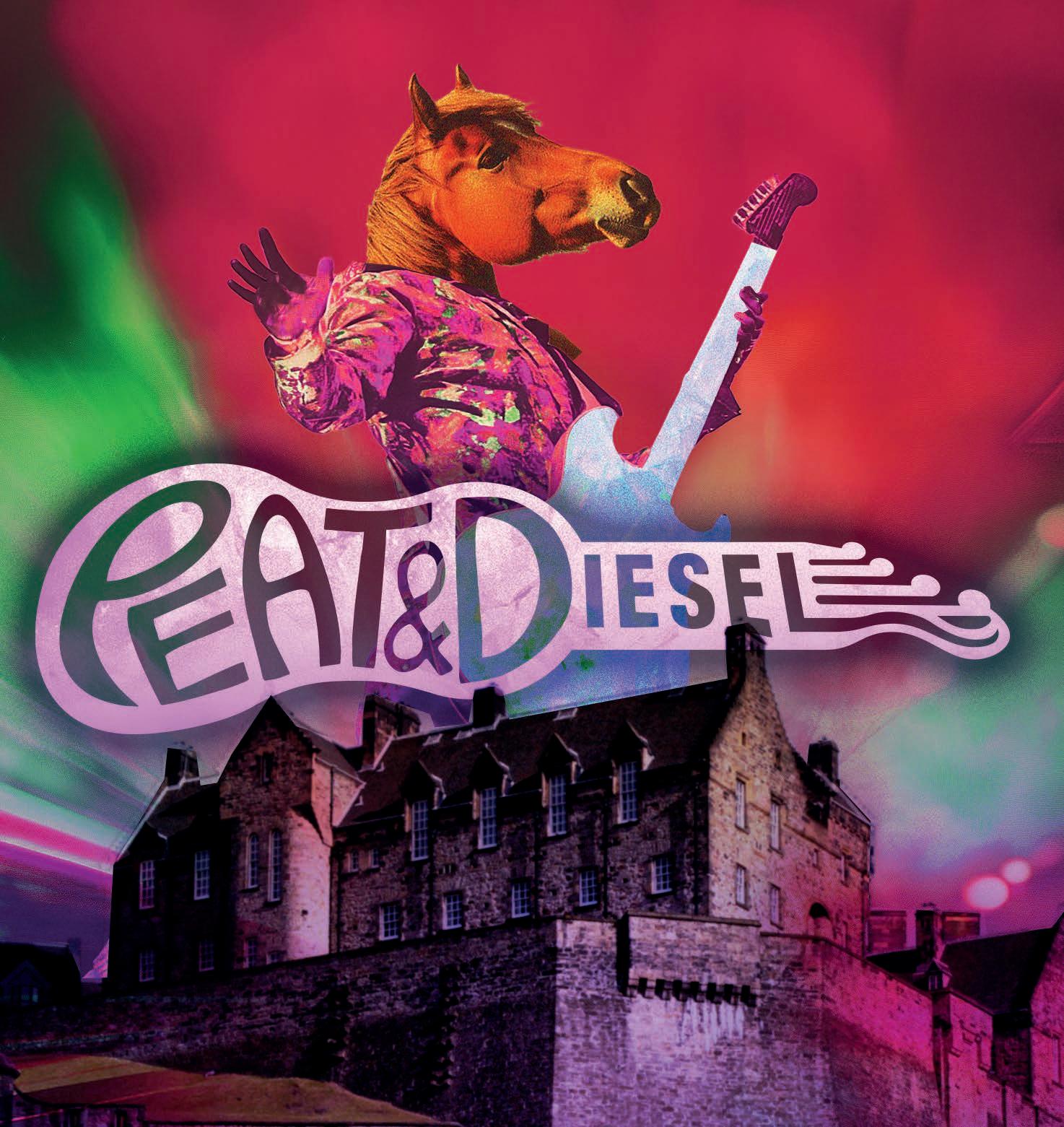
Man Down, Level Up
It’s all too easy to get stuck in the male gaze and let it drive your nights out: one writer tells how their uni experiences – and some Wet Leg lyrics – helped them change perspective
The
first night I lived in university housing is burned into my mind. Hurricane Ida was hitting New York City with heavy winds and intense rainfall, and we freshers were pissed. Unable to get from Harlem to the bars downtown, we had a plan: get pizza, make that one friend go to the liquor store to get vodka, and make our own party in the dorm. I was one of a handful of girls hitting on this scrawny yet attractive dude, who thankfully ended up becoming my pal two years later. I don’t remember being too bummed that nothing happened between me and the guy; instead I was giddy to have become friends with a bunch of people that I thought were really cool.
A lesson I could have learned ‘all those’ (four) years ago is: I would always have fun on a night out with pals, and flirting with strangers on the dancefloor should only be a fun little plus to a night out. Unfortunately this is not a lesson I had the privilege of learning until after graduating from university. Instead, when I connected the dots of platonic joy fulfilling me more than a person of any gender coming onto me in a dark room ever could, it was thanks to an artist complaining about just what I thought I wanted.
Wet Leg have made me have a long think or two about why my sex life – especially interactions I have with men – has been such a priority in my social life. Especially since I’m bisexual and that’s not even the only romance I’m interested in; I knew that something had to give. On Catch These Fists, off Wet Leg’s second album Moisturizer, frontperson Rhian Teasdale sings: ‘He don’t get puss, he get the boot… / This always happens late at night / Some guy comes up, says I’m his type.’ What Teasdale says next are the lyrics that hit me like a truck: ‘Yeah, don’t approach me / I just wanna dance with my friends’.
The song has helped me realise that beyond a general amount of horniness, that feels extreme at times due to the taboo nature of the subject, I also might be trapped inside the male gaze. Beyond the phrase’s roots in feminist film analysis conceptualising how women are portrayed as objects of desire in media, the male gaze also suffocates women by way of socialisation. Why else have male interactions taken up so much of my brain space?
Gen Z are a very obsessive generation; I’m sure it has to do with the internet hot-wiring our brains through overstimulation and consumption. So when I rethink how to engage with my social life, I find the broader cultural obsession with Gen Z’s collective sex life to be a hilarious misunderstanding. Since the end of the COVID-19 lockdowns, an endless stream of mainstream media articles, by writers at least a decade older than any of us, have attempted to coin us as the ‘under-sexed generation’.
In June, The Guardian ran an article titled, A generation of ‘virgins’ is leading America’s next
Words: Billie Estrine
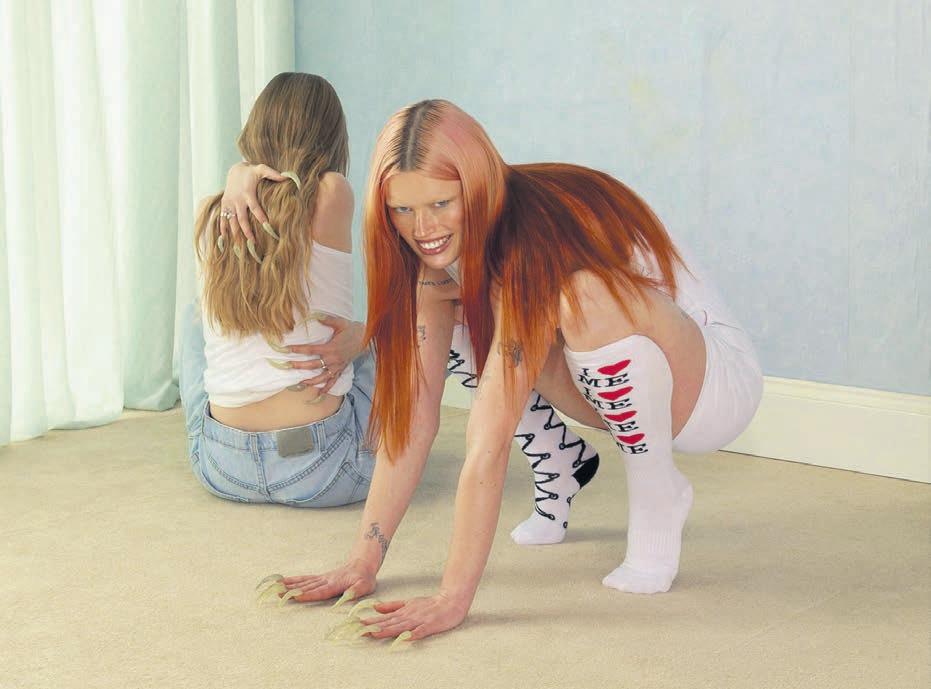
'My mission since arriving was to beat the trap of the male gaze. How could I get over this feeling and instead make going out a time where I just want to dance with my friends?'
sexual revolution. The article is an extract from Carter Sherman’s new book, The Second Coming: Sex and the Next Generation’s Fight Over Its Future Sherman conducted hundreds of interviews with a diverse group of Gen Zers, creating a succinct argument that young adults are not only still horny, we’ve revolutionised our sex lives in an increasingly conservative climate. To quote Sherman: “Many Gen Zers have been spurred to extraordinary activism in support of sexual progressivism.”
Sherman goes beyond the basics of Gen Z simply having more sex than you might have heard, and brings to light the politicisation Gen Z has created around their sex lives. Personally, the way this politicalisation has affected me is recognising the male gaze’s self-imposed self-objectification, and the loss of reproductive justice rights in the United States and trans folks’ right to gender-affirming healthcare in the UK and USA.
I’ve been in Edinburgh for two months and trying to approach my social life from this
new enlightened perspective. My mission since arriving was to beat the trap of the male gaze. How could I get over this feeling and instead make going out a time where I just want to dance with my friends? Since I’m new in town and can’t exactly go out and dance with my NYC friends, instead I’ve been making very purposeful decisions on a night out to dance with a group of girls, paying no mind to the romantic fancies reeling around in my head.
Habits are famously hard to break. Don’t get me wrong: my mental space and social life since reprioritising my focus on a night out are still irrationally occupied by romance. However, when I was single in my last year at uni I spent so much time obsessing over the possibility of meeting a stranger, when I should have focused on having the time of my life with my best pals. Now when I go on a night out, I feel so much less obsessive about how I am being perceived in a club or at a gig and it’s fucking liberating.
Image: courtesy of Domino Records
Wet Leg's Moisturizer album artwork
Solidarity Steps
Keen to get involved in activism? Your student years are the perfect time to start. Here’s a rundown of our top tips, as well as a handful of organisations to keep on your radar
Start small
It is undeniably overwhelming to consider the sheer scale of ongoing injustice – both at home and away. But small actions contribute to big movements and it’s okay to ease yourself in. Attend a protest, write to your MSP, commit to a boycott. Look to others with more experience to help you with these first steps. Afterall, building confidence takes time.
Team up
Taking those first steps can be daunting – especially on your own. Bringing a friend along to that first meeting or protest can be helpful but, if that’s not an option, don’t worry: organisers are well-accustomed to welcoming newbies and making that first introduction. Standing in solidarity with others is also a great way to connect with likeminded people. Your university will likely have groups dedicated to specific movements – from abortion rights to climate justice – but it’s also great to look outwith the university bubble. For instance, each week, international mutual aid project Food Not Bombs (with branches in Edinburgh’s Leith and Glasgow’s Govanhill, amongst others) prepares and shares free food in the local community. Enjoy a hearty meal, get involved, and make a friend or two, while you’re at it.
Follow your interests
While all stru les are interconnected, focusing on a particular movement or campaign can be helpful. As Lucy Grieves, Co-Founder of student-led campaign group Back Off Scotland, tells us: “Sometimes at university, it can be hard to see how you may apply what you learn to the ‘real world’ but this is a great time to find out what interests you and let that lead what you do next.” Your studies can live beyond the library. Likewise, activism is also an opportunity to pursue your passions which don’t fit too neatly into your degree. Guerilla gardening, anyone?
Get creative
Remember: art is political and activism isn’t limited to petitions and placards. Attending activist-led arts events can broaden your world view and nurture your day-to-day activism. Check out Art Workers for Palestine Scotland. As well as lobbying Scotland-based arts organisations, they also regularly host workshops – reading, writing, embroidery – which centre around Palestinian solidarity. Meanwhile, this autumn also sees the return of Take One Action, a film festival which celebrates the power of film to unite communities and create real change. You’ll be hard pressed to leave such events without a renewed sense of hope.
Words: Eilidh Akilade
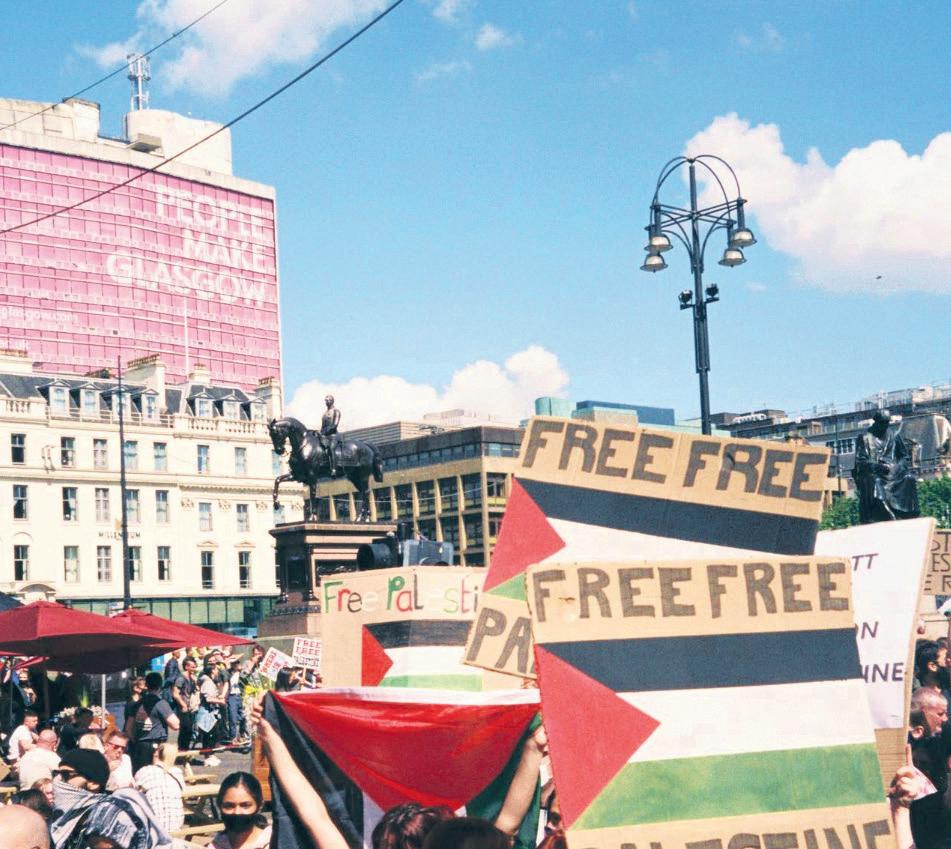
Think local
Activism is closer to home than you think and showing up for your community often means showing up with your community. Take Living Rent – Scotland’s tenant and community union. Rooted in working class stru le, Living Rent believes that power belongs with the people. If you’re personally navigating the ever-nightmarish state of landlordism, this is the union to turn to. Monthly meetings are a great way to ease yourself in, with branches in Glasgow, Edinburgh, and Dundee. Strike up a conversation with your neighbour while you’re there, in case you ever find yourself needing a cup of sugar.
Spend wisely
Don’t forget the weight of your own spending power. Keep up to date with the BDS Movement and consider joining the weekly global economic strike, led by the Humanti Project. If it’s possible in your current financial situation, donating to mutual aid crowdfunders is likewise a great way to directly support communities.
Know your rights
With increased police powers and legal scrutiny, protest can bring its risks – especially for marginalised communities. It’s worth familiarising yourself with the good folk over at Scottish Community & Activist Legal Project (SCALP), a collective which offers legal support and challenges police abuse. In addition to a number of in-depth online resources, SCALP runs workshops and training sessions; in particular, their Know Your Rights training is a brilliant place to start. You’ll also catch them at protests, providing on-hand support in case of arrest. Knowing who to turn to is crucial in looking out for those around you.
Take care
It’s a tough time to be a person in the world – and it’s easy to feel disheartened. Thankfully, you’re not alone. Connect with Glasgow-based Exhale Group, which creates safe spaces for QTIPOC+. Or, find solace in the stacked shelves of Lighthouse, Edinburgh’s radical bookshop. Perhaps, simply, spend time with your loved ones. Take care of yourself and others – and let them take care of you too.
Breaking into Scotland’s Art Scene
Gatekeepers stand aside. Making your mark in Scotland’s visual art scene can feel like a daunting task, but we’re here to show you the ropes
Breaking into Scotland’s visual art scene can feel like a daunting task, especially if you have no direct contacts to show you the ropes. Fortunately, there are plenty of ways to get your foot in the door and find your arts-loving community across the country.
Make an exhibition of yourself
If you’re motivated to develop an exhibition practice alongside your studies, established curatorial collectives might just inspire you to find your niche. Take Glasgow-based 16 Collective, for example. 16 Collective have established themselves as a curatorial powerhouse with a feminist edge – they’re focused on spreading the love for experimental contemporary art and redistributing power, with particular attention to female-identifying, LGBTQ+ and working-class artists. Curatorial platform FEMME has also caught our eye for its queer, feminist and DIY approach to exhibition making.
Scotland is a haven for grassroots, artist-led exhibition spaces. Among them are Generator Projects in Dundee: a non-profit, collaborative and membership-based space dedicated to fostering creativity. While their funded programme is not available to full-time students, their Takeover projects allow members to run events or exhibitions in the Generator galleries or Community Space. Best of all, it’s free to become a member and to run a Takeover project – though if you’re in the financial position to do so, you can donate to support their programming.
In Edinburgh, Sett Studios and Embassy come to mind for grassroots exhibition opportunities. Sett Studios provide a financially accessible and safe space for artists to make, prioritising those from financially and socially disadvantaged backgrounds, while Embassy supports early-career artists through an exhibition programme and commissioning opportunities in a non-hierarchical setting.
Write like no one’s watching
Here at The Skinny, we receive several lovely emails a day from students on the hunt for their first journalism gig. Nothing shows initiative more than someone who writes keenly for their student newspaper, or runs their own Substack devoted to art observations. We’re looking for evidence that you can translate that niche academic interest into a timely and original piece of arts journalism.
Creative Scotland’s Opportunities tool is about to become your best friend. Keep an eye out for emerging writer schemes, residency or mentorship opportunities which will support you to hone your craft. Shameless plug: for the last four years, in collaboration with Edinburgh Art Festival,
Words: Rachel Ashenden
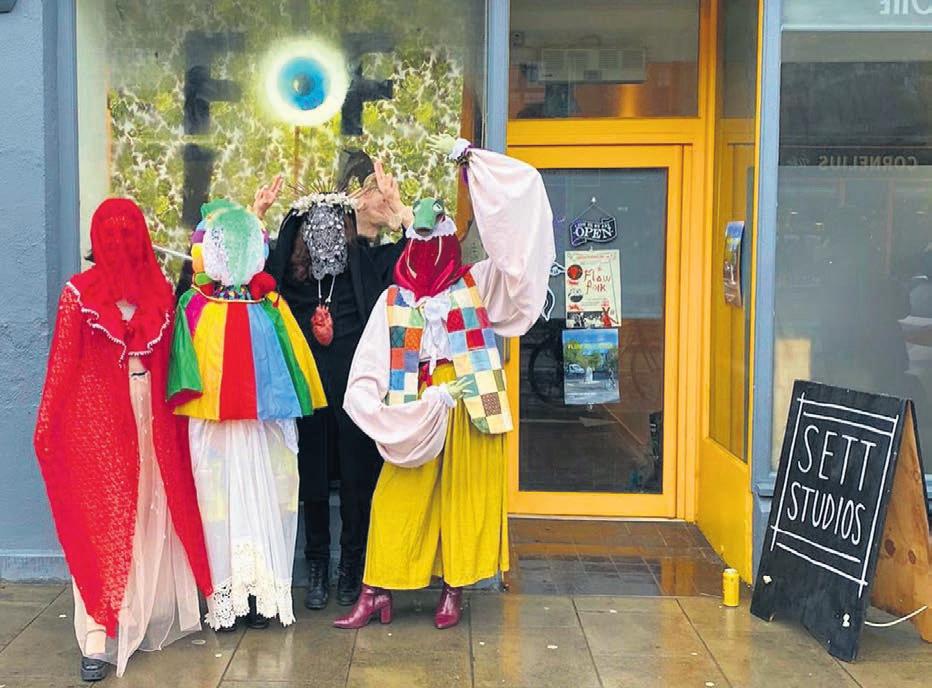
The Skinny has run an Emerging Writer scheme. The scheme supports Scotland-based, early career writers from backgrounds underrepresented in journalism through a mentored, paid opportunity to be published in our magazine – both print and online.
In the words of Chloe Caldwell, author of lesbian cult-classic Women: “Writing publicly is so embarrassing. But someone’s gotta do it.” It can feel incredibly vulnerable to get your name and your words out there, which is why building a community of fellow writers can help stave off the fear. The Skinny runs monthly meet-ups for art writers across Scotland, where we explore an exhibition together before chatting about the art on the walls, and art journalism in general, over the ultimate writing fuel (coffee). Gallery Ba ing also run regular ‘[synonym]’ sessions that facilitate writing within exhibition spaces. Through thoughtful writing prompts, facilitators A-J Reynolds and Eliza Coulson create a dialogue about the exhibition at hand – no previous art writing experience is required.
Showing up
While an invitation to an exhibition opening at a big ol’ institution might seem hard to come by,
refreshingly, there are many galleries with an open-door policy out there. Glasgow Art Map has made it easier for us to find them. Use this independent guide to exhibitions happening across the city as a tool to establish connections with galleries, artists and curators. Wherever you’re based, keeping up to date with exhibition openings through newsletter subscriptions and social media can go a long way.
Beyond exhibition openings, there’s artist in-conversations. These dialogical events are a way for artists to explore their creative process, context and intentions, and often leave room for you to present your questions. During August, Edinburgh Art Festival organise several thoughtprovoking conversations, while Edinburgh International Book Festival often have an art focus in their programme.
Of all the art forms, visual art has a reputation for being the wankiest. I’ve lost count of the number of people who have told me “I enjoy going to exhibitions and writing, but I can’t write about art.” Our ethos at The Skinny is: “Why the hell not?” Hopefully, this snapshot of opportunities reassures you that there are folk out there hellbent on demystifying the art scene.
Photo: Ot Pascoe
SETT Studios
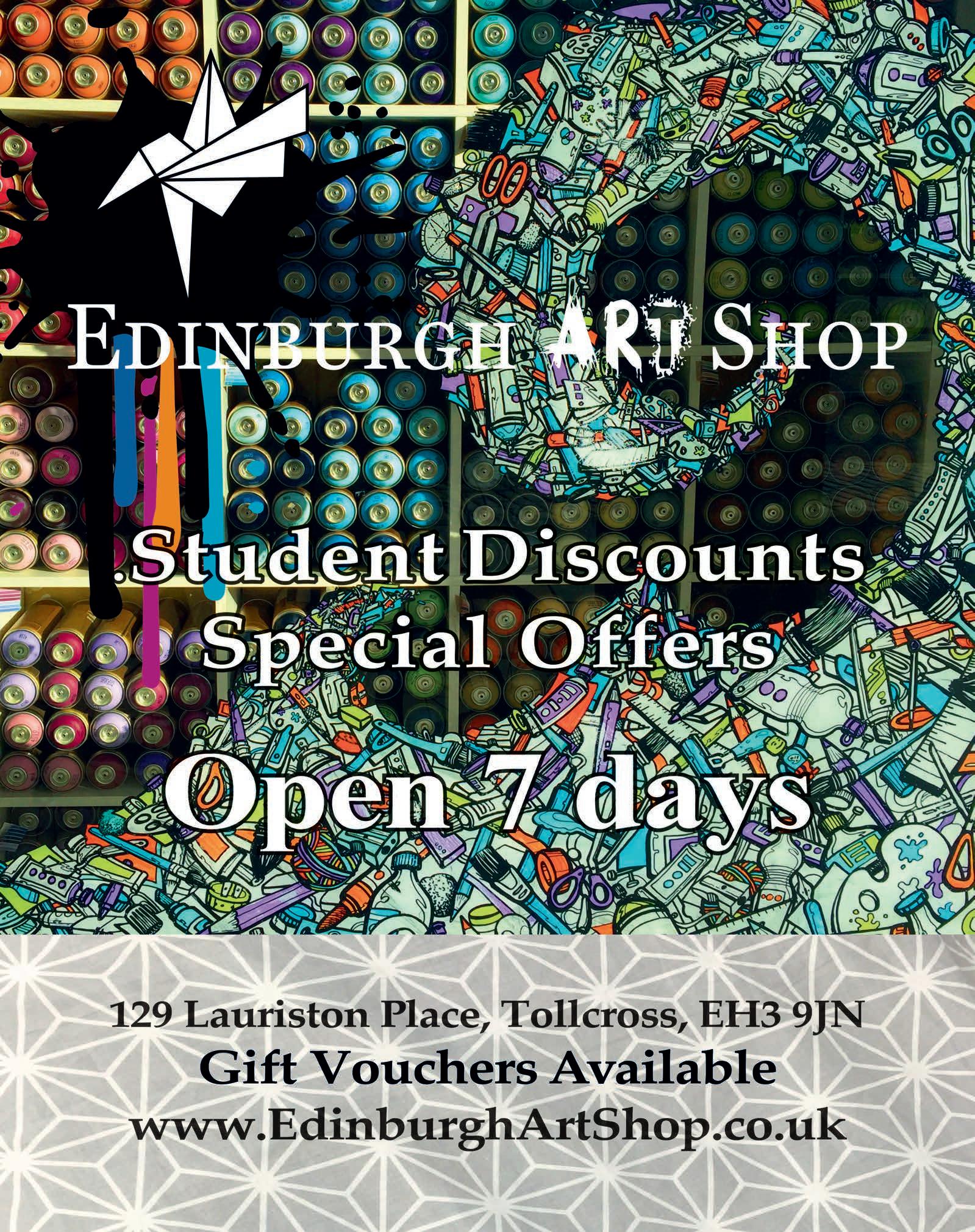

ANYWHERE A free membership for 15 to 25-year-olds.
£6.40 tickets to any standard GFT show. Discounted standard Glasgow Film Festival tickets. One free youth screening a month. Earn loyalty points for every pound you spend.
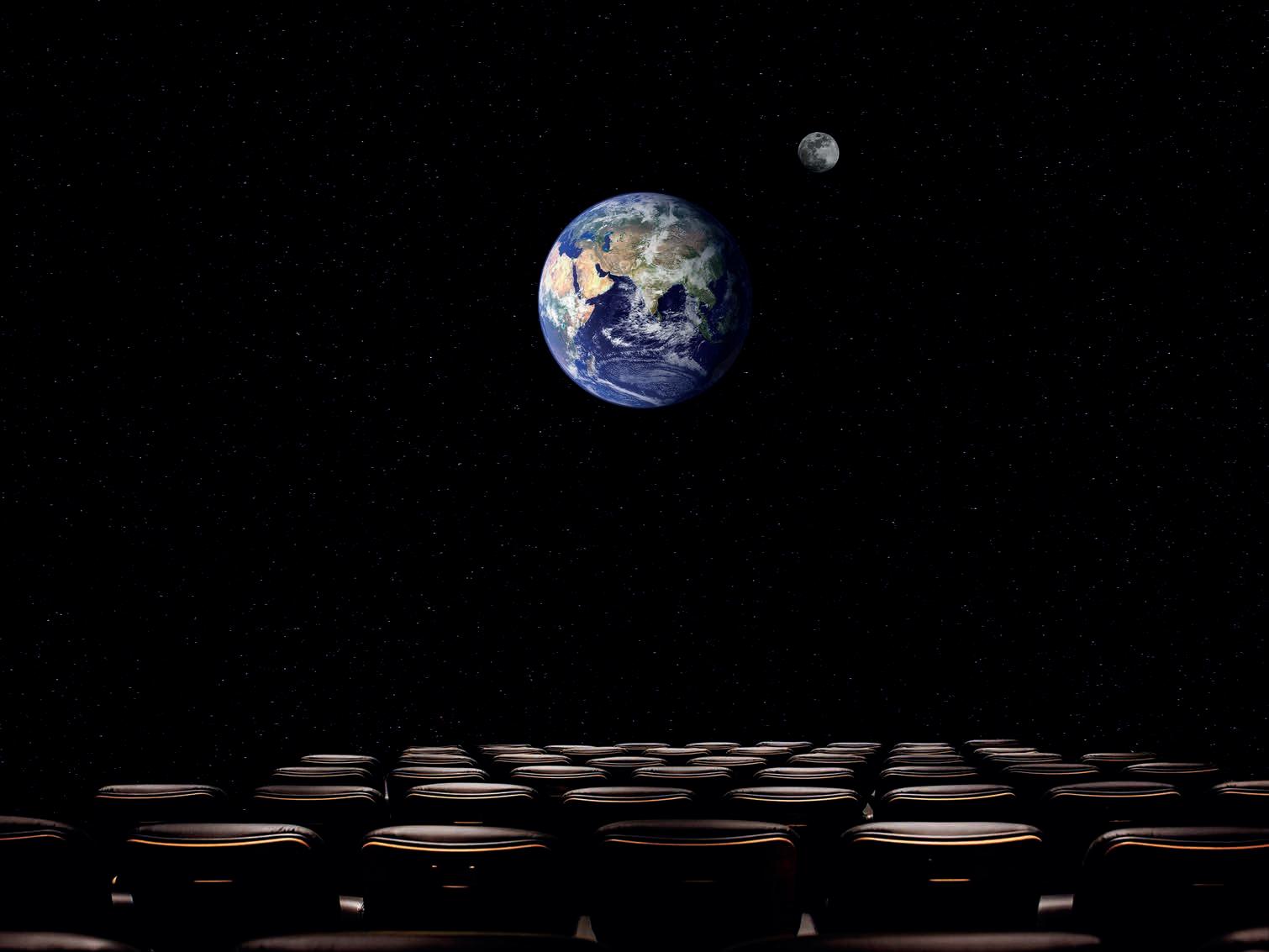
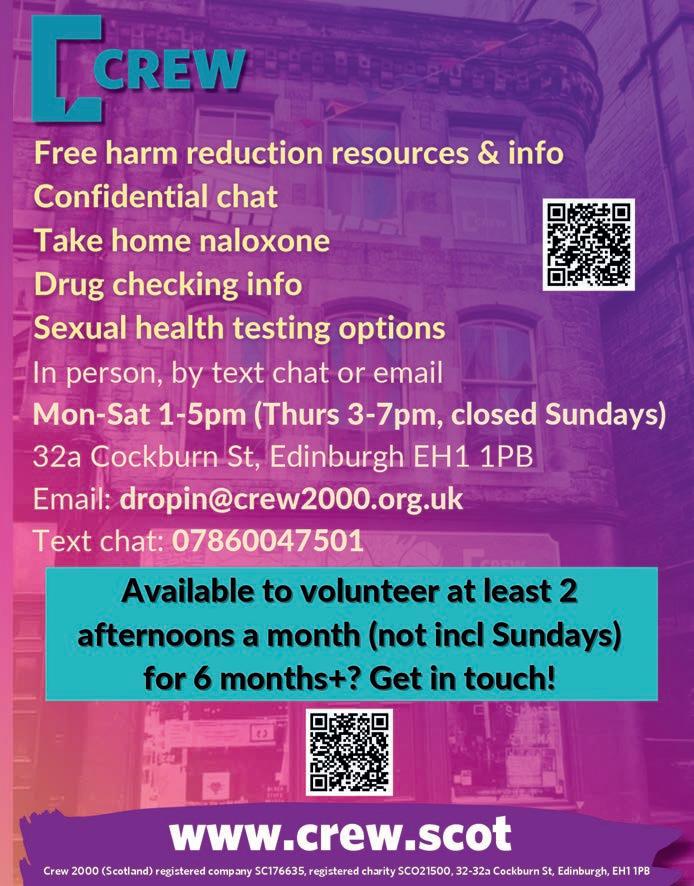
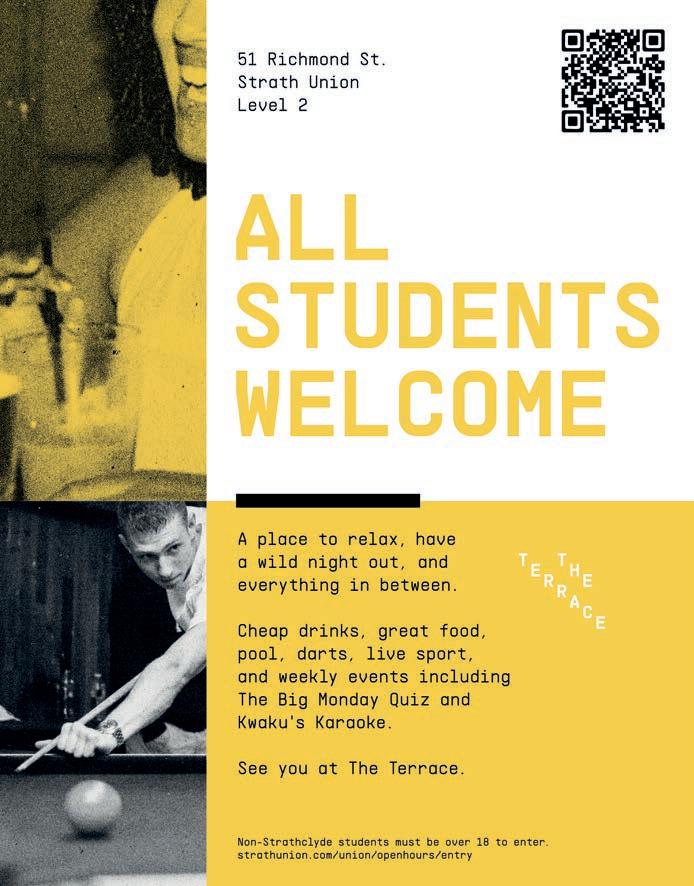
A day in the life
One art student takes us with him on an average day via a meditation on class and access to creative learning
Words: Michael Smith
It was half past four on a Wednesday and I was in the lingerie section of Primark on Sauchiehall Street, crouching to the bottom rail to weigh in on the dilemma my friend was having. My friend had recently impulsively purchased an inflatable man – the kind that flail about in the wind outside car garages. In order to find a feminist slant that had yet to be fully figured out, she wanted to dress the inflatable tube man in bra and pants, and having blown most of the budget already, the rest of the project made shoestring look indulgent.
We had to communicate that this whole thing was a joke, so we opted for a pink lacy number after agreeing that ‘red is too overtly sexy’. We fell out in to the baking sun and set our sights on our next task – a pint.
If you’ve ever tried to drink outdoors at The Vic Bar on Scott Street, then you’ll know that it’s a bastard of a hill and your glass may well start sliding down the trestle table like an alcoholic log flume at M&D’s. But it’s a nice day, and we look out on to the plastic coated scaffolding structure we’re reliably informed was once the Mackintosh Building.
After two fires nearly ten years ago, it still lies silent like a haunted shrine – teasing us with glimpses of its beauty; stunning iron work, charred bricks and intact street signs can be spotted in amongst a maze of scaffolding and cladding. We hear about it in awed tones, like ghost stories – about the light and the space and the elephants that were brought in from a local circus in the early 20th century for the students to draw. Unethical, sure – but how class would it be to draw an elephant?
The thing I love most about art school is the way we talk about ideas, craft, techniques and how to move things forward. Design is, at its core, a commitment to making things better. I have never been more creatively determined and every day I am around students and tutors that are endlessly talented, interesting and curious. This is a microcosm of what our culture is driven by, and what it has always been – a love of ideas and following curiosity. This environment is amazing and inspiring. But there’s a problem – who gets to access it.
I am a proud product of a Glasgow state school and my parents do not work in the creative industries, but I am fully aware that any success I’ve had in freelance work or
education has been rooted in the support of my family and the luxury of being able to fail without financial consequence.
I fear that Scottish people, working class people and those from underrepresented groups are unable to pursue the arts and the creative industries as a plausible career path. I firmly believe that if we are to push the needle forward for Scottish culture, it is essential that our creative institutions and industries fight off the classism that is inherent here.
The Glasgow School of Art’s demographic breakdown sits with 25% International Students, 20% from the rest of the UK and a minority of 20% from the most deprived areas of Scotland. At the same time, our cultural economy is being eroded, with Creative Scotland’s Open Fund being cancelled then re-instated, with its future constantly being called into question.
'The thing I love most about art school is the way we talk about ideas, craft, techniques and how to move things forward'
Education more generally is no safer. Perstudent funding for domestic students has fallen 19% in real terms since 2013, and the 2024/25 budget includes a further 6% cut to teaching grants. As a result, universities are pushed to rely heavily on international fees, creating a system where well-resourced international students gain access, while many working-class Scots are shut out. Even for those who make it through a creative degree, post-graduation things can often get even tougher. Freelance work, internships and projects for low or no fee can be amazing stepping stones to other things, but only if you have the financial support to survive them. Not everyone does. And when people have to prioritise financial stability over creative opportunity, the industry becomes less diverse, dynamic and representative of the society we live in.
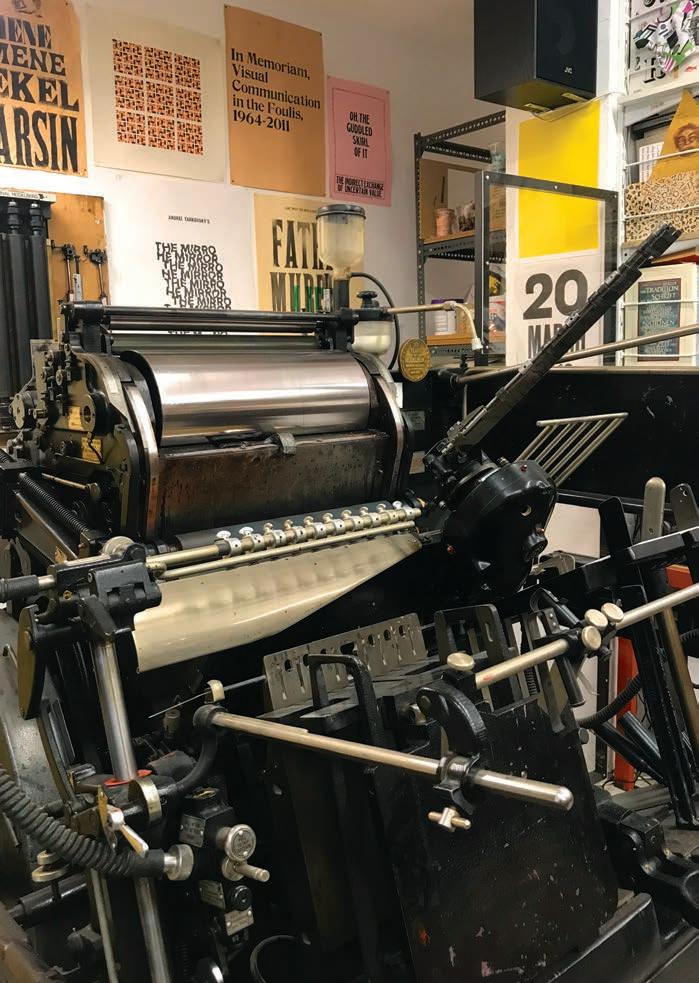
It doesn’t need to be like this. Look at sports – we pump billions into sports because it is largely understood that it benefits our culture, communities, economy and tourism as well as people’s mental and physical health.
It may seem quaint to discuss arts funding in the current omnicrisis clusterfuck that is the modern news agenda. But it matters; diversity in the arts is paramount to social mobility. It’s about who gets to create, have their voice heard and shape our culture and society, and overlooking it now only deepens inequity later. I will always feel a depth of gratitude that I get to wander the halls of the Art School, and feel the sense of possibility and opportunity to move our culture forward. I just want those doors to be opened for those we don’t know we need yet.
Photo: Phoebe Willison
The Caseroom at GSA
Get With The Programme
Your local music scene is powered by great grassroots promoters – we chat to three of them to get some insight into how a great gig comes together
Whether you’ve been going to gigs for years or are trying to get acquainted with a new city, there are many ways to navigate Scotland’s plethora of underground music scenes. The best way to go about it is to follow the folk already putting on some of the hottest events, in the sweatiest (complimentary) venues that their city has to offer. From there, you can form your own collective and programme an event to fill a gap that you feel is open. Two years ago WSHWSH did just that.
As WSHWSH organisers Salam Kitty, Shem, Luna and Fatma explain: “We were all having individual conversations about feeling a gap in the club scene in terms of Arab and SWANA [South West Asia and North Africa] representation and wanted to do something about it.” The collective’s driving ethos is to create space for people from the SWANA regions to come together “regardless of religion and sexuality to celebrate our cultures, listen to our music, and just have fun.”
Finding your first venue can be daunting; the home base for the collective’s first event in 2023 was the since-shuttered queer co-op bar Bonjour. “Luckily when we started, Bonjour was still open,” WSHWSH say, “and they were very open and welcoming of supporting new nights. Salam had a link to them from [queer BPOC club night]
Mojxmma, so that was our natural choice.” The collective’s first club night was a sold-out success, and was met with resounding celebration from their community. They tell us: “Since starting WSHWSH so many people have told us that they haven’t felt like there’s a space for SWANA people in Glasgow to meet and connect in spaces that celebrate our culture, especially for women and queer people. Especially with the issues that our communities are facing at the moment in the UK, and in our homelands, it’s important for us to have a space like this to be together, and find some joy and connection.”
Another Glaswegian collective that’s been rock ‘n’ rolling their way around the underground is Weird & Wired. James Carvalho and Cammy Young-Lee started organising gigs as Weird & Wired in 2022. They’ve since moved to London and continue to put on gigs under the Weird & Wired name there but they’ve passed the Glasgow-based W&W torch to Jules Che Thurlow, Millie Hanlon Cole, Louis Muller Stuart, Moana Watson, Aedan (Willy) Wilson, and Kira Wolfe Murray.
Some of the group began putting on gigs while in university, which was no small feat (“a lot of work to manage a dissertation alongside this – but fun!”) and now the gang volunteer their time organising gigs that combine live electronic and punk music into one night of headbanging and moshing galore. The collective tell us that those two styles have “a real vein of shared mentalities between them and a lot of the same energy (self expression, embracing noise, thinking outside of the box).”
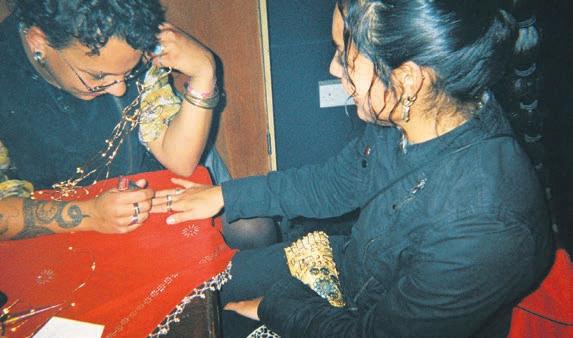
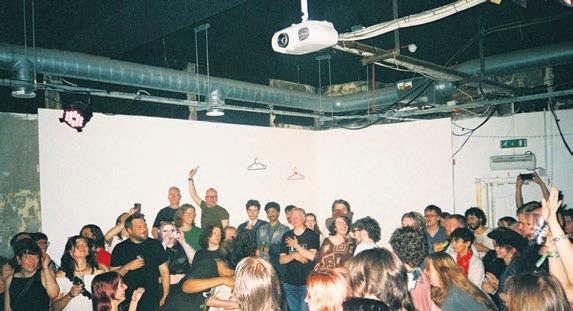
The punk methodology behind Weird & Wired extends to how they handle the business side of event programming. The group explain: “We evenly split the take between us and bands after booking costs. Any money we have left after our own costs is donated to charity, so we are never taking a profit. That being said, we are all volunteers and fortunate enough to be able to dedicate time to this for nothing, things are trickier when people need to make a livelihood from organising gigs.” The collective’s punk ethos runs deep, and fundraising raffles – especially for the people of Palestine in Gaza, facing the atrocities of Israel’s genocide – are programmed between bands’ sets at most Weird & Wired gigs.
Words: Billie Estrine
“Put on gigs because you’ve discovered a band and NEED to tell the world about them”
David Weaver
Leaving Glasgow, David Weaver is the booker at Stirling venues Tolbooth and Albert Halls. His gig programming goes back to high school in Alness in the northeast. He tells us: “We were 16 or 17 and putting on gigs in pubs that we weren’t legally allowed in, or putting on all-dayers in village halls.” At uni, Weaver continued: “When I went to Stirling University, it was kind of similar. I was part of the team running Air3, the student radio station. We managed to get a whole bunch of bands to come in and do sessions for us, and then we were able to start putting on gigs.”
For Weaver, booking gigs has always been about the need for people to know about the bands he puts on the bill. He tells us: “Put on gigs because you’ve discovered a band and NEED to tell the world about them. Put on a show in a venue that you’ve found that you think everyone should come to. Put together a bill that excites you.” Now that Weaver books the two main venues in Stirling he finds the community created in those spaces to be the most fulfilling aspects of his job. He says: “What I love is that we have people in bands headlining the main venue, and a musician will say ‘oh I actually learnt guitar at the Tolbooth, and then I played my first gig there five years later as a 15-year-old, and now I’m back 10 years later headlining.’” Whether you want to put on a gig or throw a party in the student union, there’s a plethora of ways to create a good time for yourself and those in your community; get out there, you’re in good company.
Debut new night from Salam Kitty featuring T.NO and Kinluiz, EXIT Glasgow, 26 Sep
Weird and Wired present The Bleeders, Comfort Girl and Self Love, The Old Hairdresser’s, Glasgow, 26 Sep
Interesting Things, Tolbooth, Stirling, 4 Oct, under 25s and Students £30
@wshwsh_____ / @weirdandwired_ / @tolboothstirling
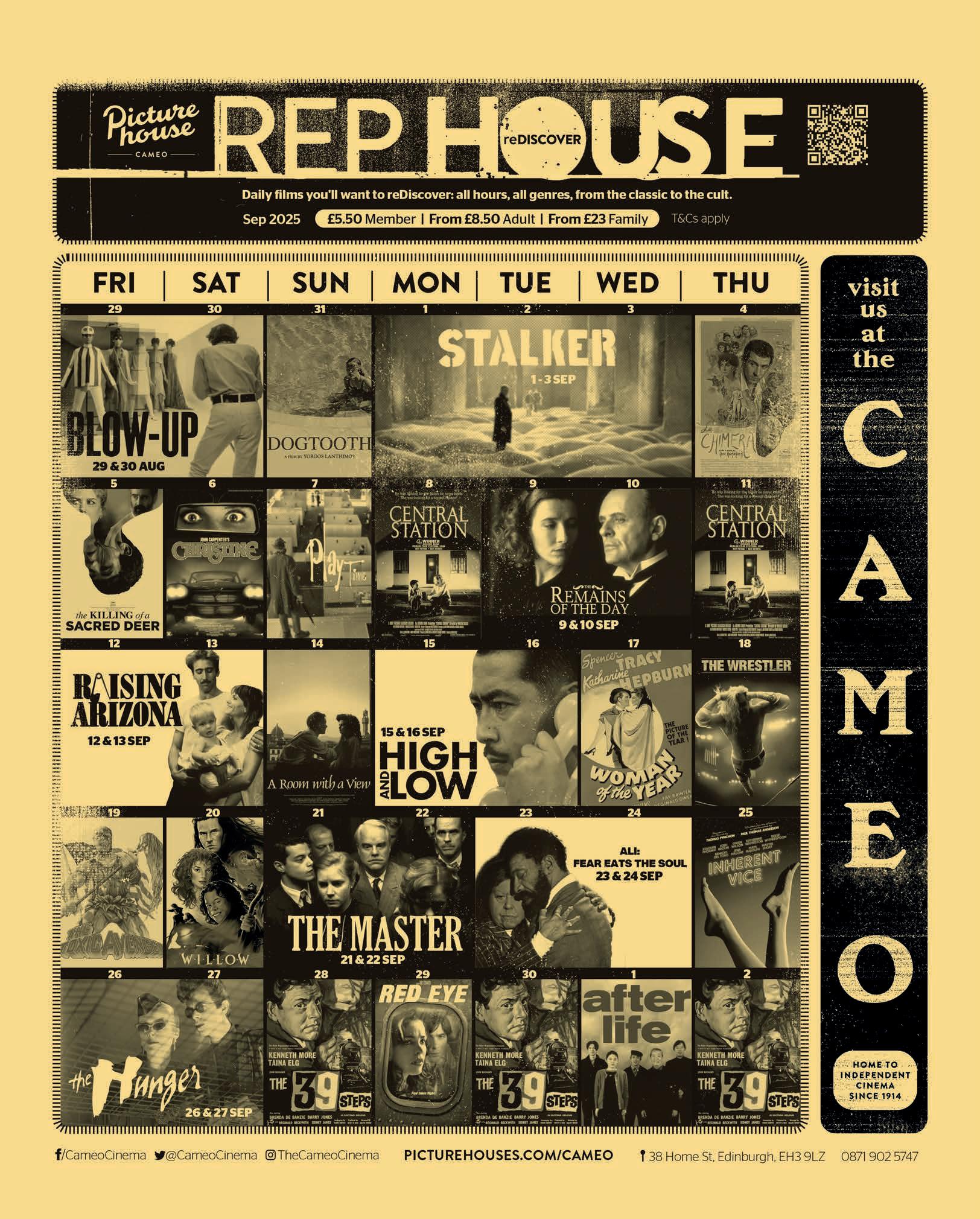
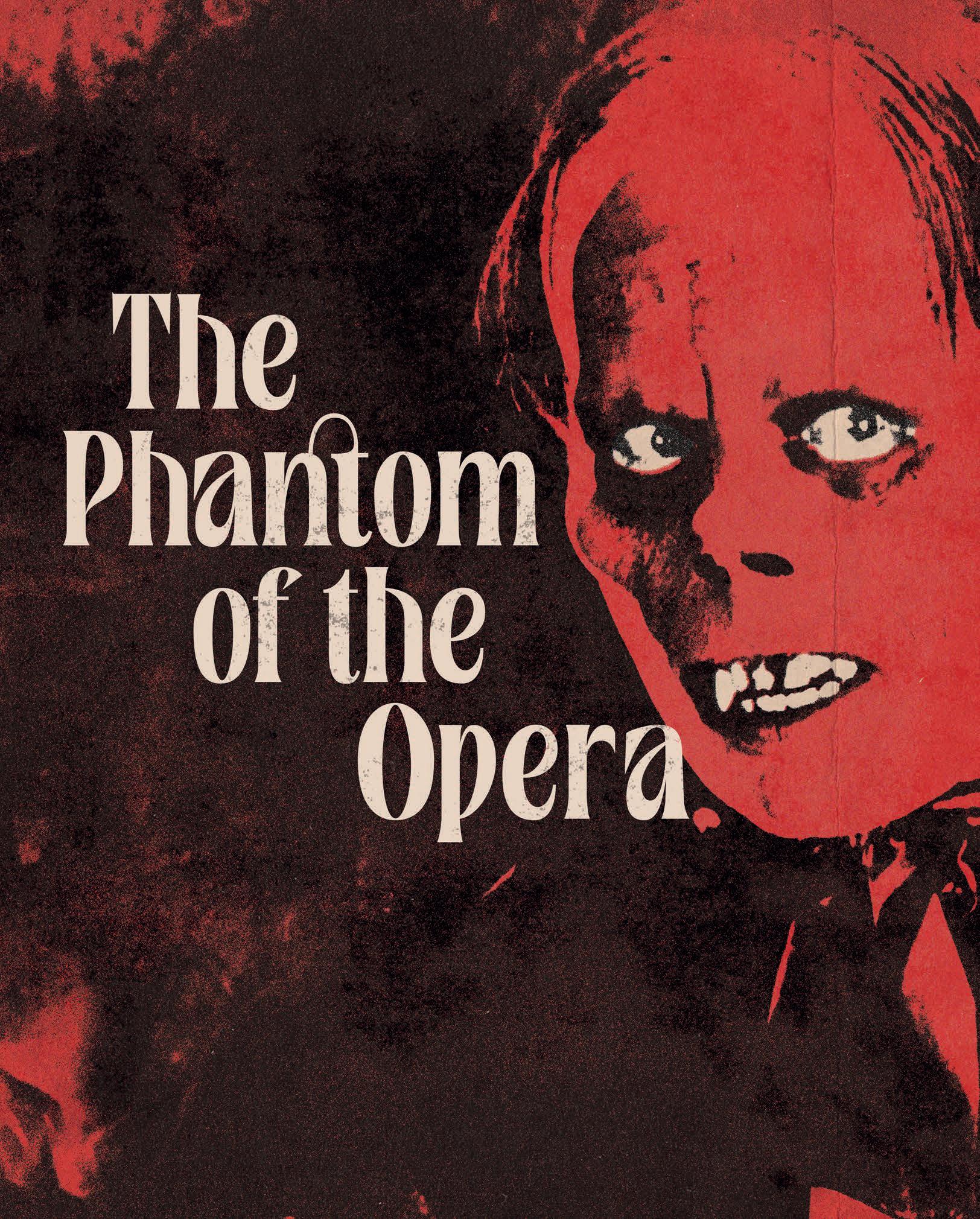

Creative Commons
We speak to some of Scotland’s creatives about the importance of finding community, and how to get yourself involved
Moving to a new city – or perhaps a new country – might feel lonely at times, but luckily for Scotland’s students, we’re known for being welcoming. This friendly demeanour extends to our thriving creative community, where you’ll find an active annual calendar of events. Open the doors to your new home by searching on socials and asking around – you’ll find talks from international design superstars, drop-in co-working sessions for freelancers and side-hustlers, DIY club nights and open decks, and grassroots organisations putting on talks and workshops. We’ve pulled together some of our favourites to get you started.
“Go for any opportunity, even if it feels a bit out of your usual”
Ines
Chapelo, Edinburgh College of Art Student
Born in 2014 from a student project at Edinburgh College of Art, INTL Festival is an unmissable two weeks of creative events in Glasgow, which runs this year from 6-21 November. The programme includes a star-studded conference with talks from Pentagram, OK-RM and Annie Atkins, and a selection of workshops led by those at the top of their game in areas such as sculpture, creative coding, and branding. Mook Attanath, project manager of INTL and an ECA grad herself, su ests students might want to sign up for a Live Project: “It’s an opportunity to tackle a brief that challenges your design thinking, while collaborating with a local design studio that pushes you to develop the best version of your idea.” What’s more, winners from each mentor group receive studio placement offers to get them kick-started with real design agency experience. “It’s the kind of environment that encourages you to expand your creative playground,” explains Attanath. For more regular programming, there’s an ever growing list of events run by Glasgow’s grassroots organisations. Colour Theory celebrates and amplifies the voices of BPOC artists in Scotland, while Glasgow Glyph Gang runs talks and workshops for those who are typographically obsessed. Unknown Errors, founded by Ophelia Davis and Yexa Rivero, explores failure (and what comes after) through candid talks. With speakers ranging from top of their game C-suite agency execs to emerging talents, the nights are a refreshingly honest insight into the ups and downs of creative life. Davis tells us about the special environment these events create: “You have creative directors talking shit alongside first year students, and that dynamic can be great
– especially for those starting out – to pick people’s brains, share resources, and make genuine connections.” She also highlights the importance of finding community to get through the trickier times. “There’s many challenges facing people breaking into the design industry – while our night sadly can’t solve those issues, it can at least offer a platform to help process some of them.”
If your creative interests lean towards music and dance, and you find yourself lured by the irresistible pull of becoming a self-taught DJ (don’t worry, it happens to the best of us) Glasgow has plenty of open decks to get involved in. They’re a great way to hone your skills and practise in front of a crowd, as well as meeting like-minded people. Adrian’s Bar, a queer pub on Glasgow’s Victoria Road, hosts Tuesday sessions at 6.30pm (sign up via their Instagram). For femme and non-binary aspiring spinners, FemmeDM regularly organises open decks nights – keep an eye on their social media for details of the next one. And if Friday night is calling, pop into The Marlborough’s grand BSIDE room from 8pm til late (_alluneeed on Instagram has the details).
Bouncing back over the central belt, we speak to ECA student Ines Chapelo about her experience in Edinburgh. “I really love how designers in the Scottish community actively want to help and encourage each other, it feels like we all want to see everyone succeed rather than it being focused on being competitive.” She su ests thinking outside the box to expand your creative network. “Volunteering for any charity within or outside your university has taught me such interesting skills and allowed me to work with such talented creatives in different areas. Truly go for any opportunity, even if it feels a bit out of your usual!”
And if you’re already one step ahead and have a side-hustle on the go, join Habits for their regular drop-in coworking sessions in Edinburgh. Usually hosted in a stylish coffee shop or chic hotel, you’ll be able to rub shoulders with freelancers and founders while getting a full day’s work done. Habits also runs talks and networking events (see their Instagram for updates), with previous speakers including Gabby Secomb Fle , photographer and founder of the quirky Main Character Club.
Once you start looking, you’ll discover endless pockets of creative community in Scotland. As Attanath reflects, “Looking back to my time as a design student, I would have loved to discover just how broad and diverse the design and creative disciplines really are.” So get stuck in, this is your opportunity to try everything.
INTL Festival @intl.international; Colour Theory @colourtheory.scot; Glasgow Glyph Gang @glasgowglyphgang; Unknown Errors @unknown_errors__; Adrian’s Bar @adriansbarglasgow; Femme DM @femmedm.uk; Alluneed @_alluneeed; Habits @thisishabits
Words: Phoebe Willison
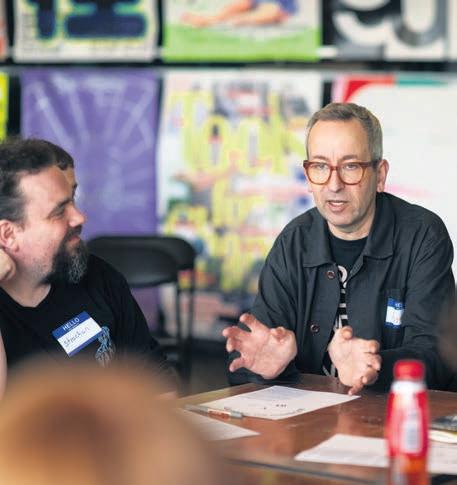
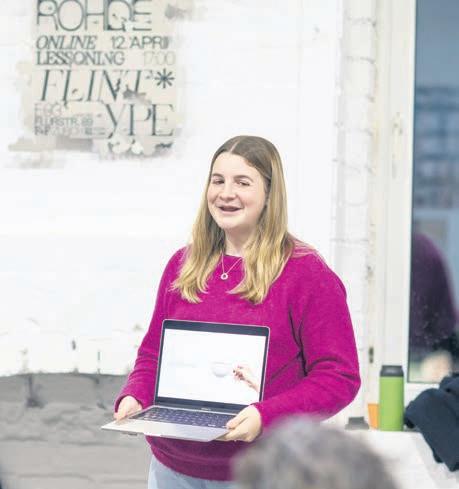
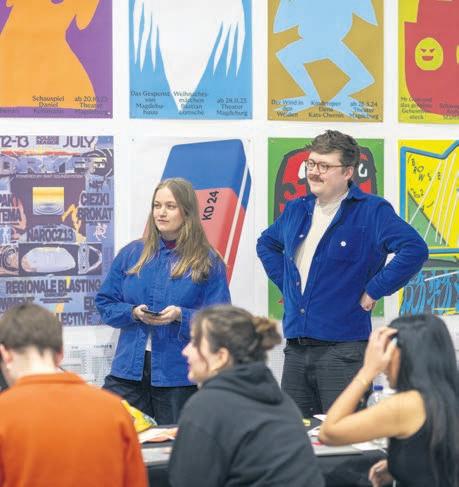
Photos: Stephen Hughes
Fresh(ers) Hell
The Skinny team have dug around in their memories to find and share some freshers and flatmate/halls horror stories from their uni days. Some memories are traumatising, some funny (in retrospect), all vivid and enduring
Being a fresher is just a million feelings, experiences, and moments of hell baked into nine speedy months. It’s usually the first time people are living away from home, outside of the watchful eye of their folks, which inevitably leads to the most unhinged behaviour humans can drunkenly manage. Even when freshers are sober it seems the decisions are not quite decisioning too hard. That’s no shot at you pal. That’s just how it felt for me at eighteen living out that hellscape of a year. Turns out a lot of The Skinny’s team felt the same way.

“When I was in halls, someone in my flat got a pet tarantula lol, which was bad enough, but he also got loads of live crickets to feed it. One night he came back drunk and knocked over the cricket tub. We all woke up in the night with crickets in our beds, and we couldn’t get rid of them for weeks. Also the tarantula died.” [Phoebe Willison]

“Came back to our halls from the Freshers Ball. Turns out that our flatmate’s few friends who were over for pre-drinks ended up throwing all our saucepans out the window, which meant we found them dented and covered in slugs by the time we returned. They also drew a penis on our fire blanket. I had to just fold it back in place.” [Ema Smekalová]
“When I studied in Glasgow, I lived with a resourceful New Yorker who picked limpets from the River Clyde for his dinner. I guess he had a pretty robust immune system?”
[Rachel Ashenden]

“The night before classes started in my first year of uni in NYC, I was awoken in the middle of the night by a completely naked man who had gotten drunk, taken a shower, and then lost his way going back to his dorm room, so he was going door to door looking for it, naked and drenched.” [Rho Chung]
“I made the mistake of kissing my flatmate’s brother at a Halloween party and then he honestly hung around like a bad smell for weeks, like he was just always there. I kept having to excuse myself when he appeared and at one point I made the bold decision to just leave the flat, but still he didn’t get the hint. When he realised I’d left, he actually chased me down the street yelling, ‘Do you even like meeeee’. I thought it was pretty clear that no, I did not. So yeah, the whole thing was incredibly awkward, so please heed my advice and don’t get involved in any way whatsoever with a flatmate’s sibling. Just don’t do it!!” [Tallah Brash]
“When I was out at my favourite Brooklyn venue, the Knitting Factory – how am I only twenty-one and I have a favourite venue that’s had to shut their doors – my insane pal was very drunk and jumped into a large pile of trash bags. We were all also very drunk and thought it was the funniest thing in the world.
“Also when I was a fresher I lived with the most insane girls in the halls and one of them threatened to stab me with a knife on Valentine’s Day. It had nothing to do with it being Valentine’s Day, but I remember when it was because of that.” [Billie Estrine]

“Looked round a flat to rent with four pals (our first one after living in halls), one bedroom downstairs, the rest upstairs. The guy in the downstairs room was being really weird when we viewed the flat, said his lightbulb in his room was broken so no light but didn’t think anything of it. This was back in *2012* so we had all taken loads of pics of the flat to remind us what it looked like with our very trendy Nikons. The day after the viewing had a weird email saying PLEASE DELETE ALL PHOTOS YOU HAVE TAKEN OF THE FLAT. Right, I mean, sure? Turns out, we loved the flat despite all that. Moved in. In the first weekend my flatmate in the downstairs room found a phonebook obliterated by bb gun shots with all the cartridges still embedded. We changed the locks.” [Polly Glynn]
Words: Billie Estrine

“People in my halls thought it was really funny to drop things out the window at 4am, four floors up on the Cowgate – they were of course drunk, it was the 00s. The police were called when they threw e s at the flat opposite, smashing on the windows and waking up the residents.
“There was an American guy in the flat who always got his mum to send over big blocks of Velveeta, a sort of super processed cheese that we all regarded with deep fascination. Someone drunkenly sculpted it into a shockingly realistic penis at one point.
“We never took out the bins, just left the bags in the hallway and once our friend, again he was drunk, fell on one and the bag burst open, covering the entire landing in ma ots. I didn’t realise until I found myself in the hall, barefoot, locked out, surrounded by writhing grubs, some of which were halfway through turning into flies.”
[Rosamund West]

“In my first year, I lived in a dorm with 11 other guys. It was fun, the lads were nice, but they did have some eccentricities. For example, the guy whose room was next to mine, who incidentally was an aeronautics engineer and was also in the Air Cadets, had a strange quirk that he had sex exclusively to the soundtrack to Top Gun. I still can’t hear the opening thrum of Kenny Lo ins’ Danger Zone without cringing and heading for the exit.” [Jamie Dunn]
“During my month-long stint inside Murano at Glasgow Uni, the peak of chat never seemed to surpass a mutual fondness for omelettes. So when, on rare occasions, outsiders wandered in for an after-party, I upstaged the e -talk deadlock and gave the green light to hotbox our ten-man kitchen – a move that was swiftly and unanimously condemned by the entire flat. Not long after a fourth-year warden – a violinist, no less –threatened to confiscate my speakers, and I dropped out. To this day, I’m not sure who the real menace was. [Cammy Gallagher]




